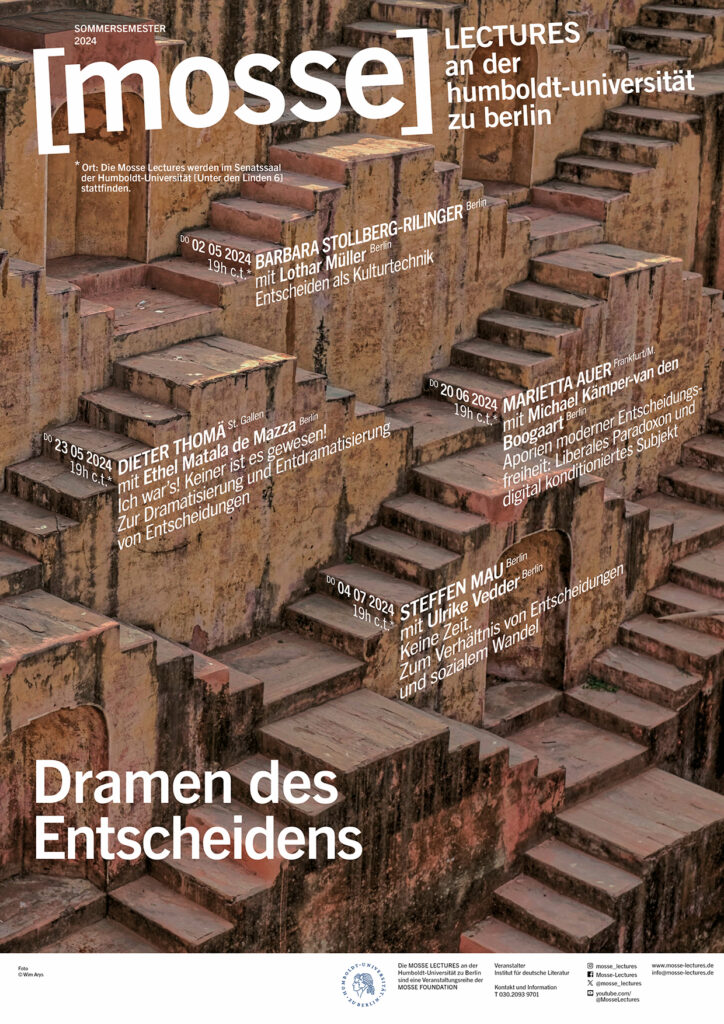Summer Term 2024
From everyday life to the ›path of life‹: decisions are incisions in time that regularly become turning points in an individual’s life. Without decisions, people are not viable. Beyond the individual, decisions are communicative acts that follow cultural, institutional and political rules. These rules determine what is considered a decision, how it is discussed and, above all, who can make decisions and under what conditions. Decisions are therefore neither an everyday occurrence, nor is it self-evident that people make decisions. Decisions are the result of their social production and thus a form of social action that changes historically and fundamentally determines the self-image of modern communities as »Entscheidungsgesellschaften« (Uwe Schimank).
However, decisions repeatedly face the problem of their justification in the face of limited resources on the one hand and a (quantitative) increase in decision-making processes in the course of »reflexive modernization« (Ulrich Beck) on the other. Decisions can be understood as a weighing up of possible courses of action that helps to determine and justify an end in the face of a multitude of possible outcomes. In addition to the eventfulness of decisionism, the temporal dimension of decision-making processes is what comes into focus here. The ongoing political crises of the present day in particular show a dramatization of such decision-making processes, the outcome of which cannot be ›certain‹ and in which the slowness of democratic procedures increasingly encounters the demand for decisive action.
In the summer semester 2024, the Mosse Lectures will explore decisions as a cultural, social and political practice: Under what conditions are decisions made and what must be presupposed so that we can perceive and name a decision as such? How have decisions been culturally framed and metaphorized, which myths and narratives turn actors into ›decision-makers‹ and institutions into places of decision? What role does chance play in decision-making processes? How do decisions change in their conditions and limits when they are increasingly delegated to digital technologies? And finally, how can the refusal to make decisions be understood as decisive protest and political resistance?
Barbara Stollberg-Rilinger
Entscheiden als Kulturtechnik
with Lothar Müller
Thursday, May 02, 2024 | 7:15 p.m. | Senatssaal of Humboldt University, Unter den Linden 6, 10117 Berlin
Deciding is not a matter of course, it is not even probable. A look at the early modern period makes something visible through the contrast that seems so self-evident to us today that we hardly notice it anymore, namely the assumption that all actions are normally based on decisions. In contrast, the thesis of the lecture is that whether and to what extent a situation is framed, modeled, staged, perceived and interpreted as a decision-making situation is variable and culturally dependent. In other words, decision-making has a history. It is a cultural technique that has been shaped and practiced in different ways throughout history.
BARBARA STOLLBERG-RILINGER: Historian, Professor of Early Modern History at the University of Münster until 2021; Rector of the Wissenschaftskolleg zu Berlin since 2018; from 2015 to 2019, Stollberg-Rilinger headed the sub-project »Decisions by Lot in the Middle Ages and Early Modern Period« in the special research area »Cultures of Decision-Making« at the University of Münster; her research focuses on the cultural history of politics in the early modern period, in particular political metaphors and symbols, rituals and procedures, the history of ideas of the Enlightenment and the constitutional history of the Holy Roman Empire of the German Nation; her most recent publications include the biography »Maria Theresia. Die Kaiserin in ihrer Zeit« and the anthology »Tyrannen. Eine Geschichte von Caligula bis Putin«.
gallery:
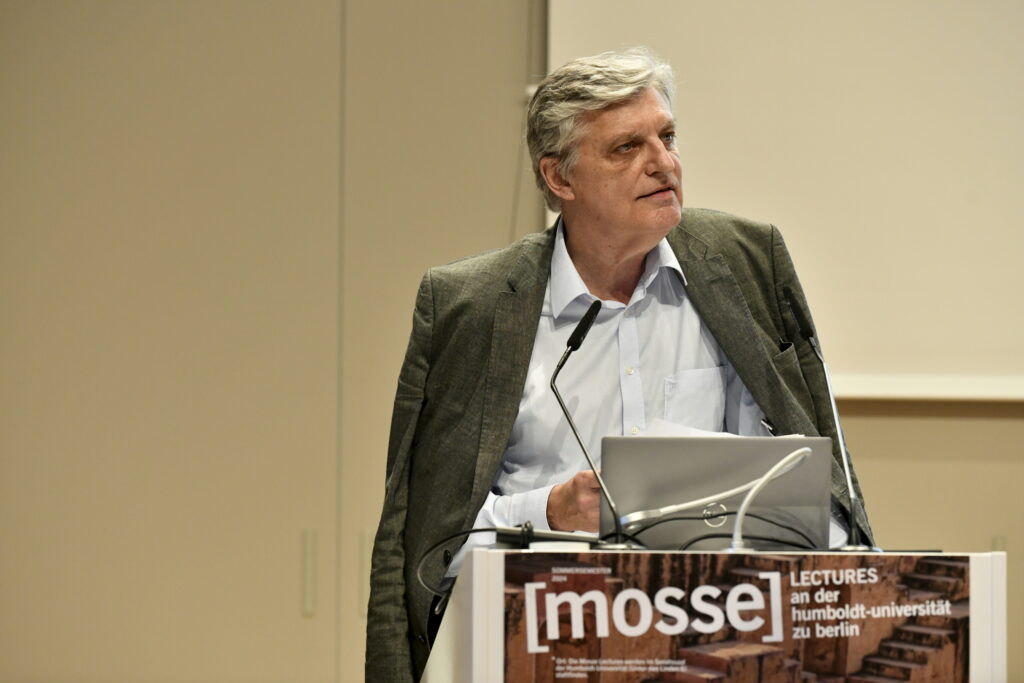
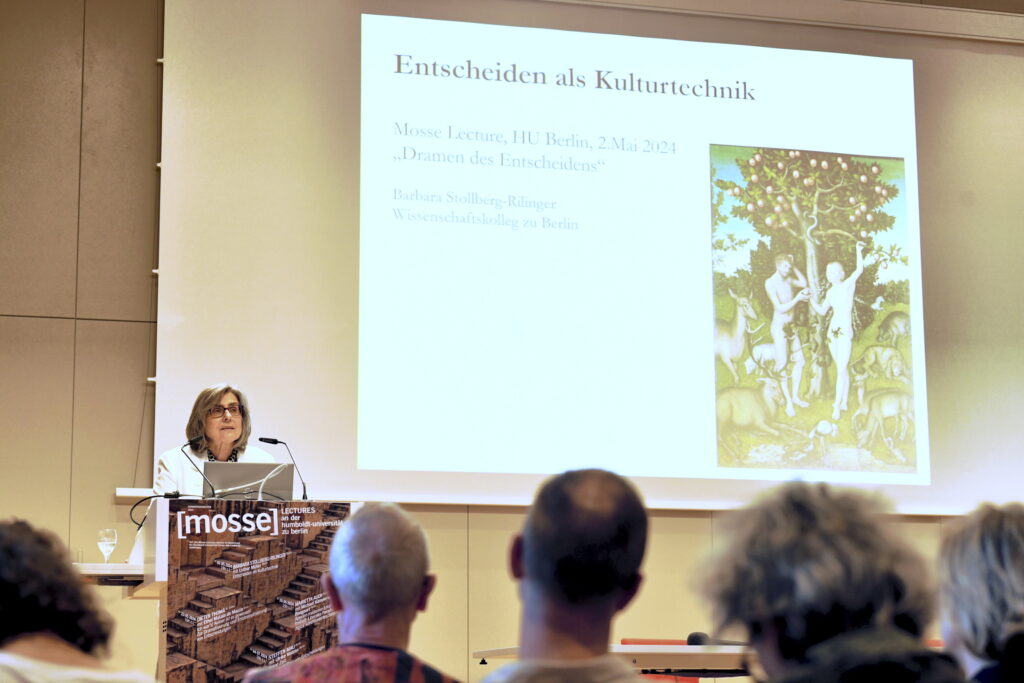
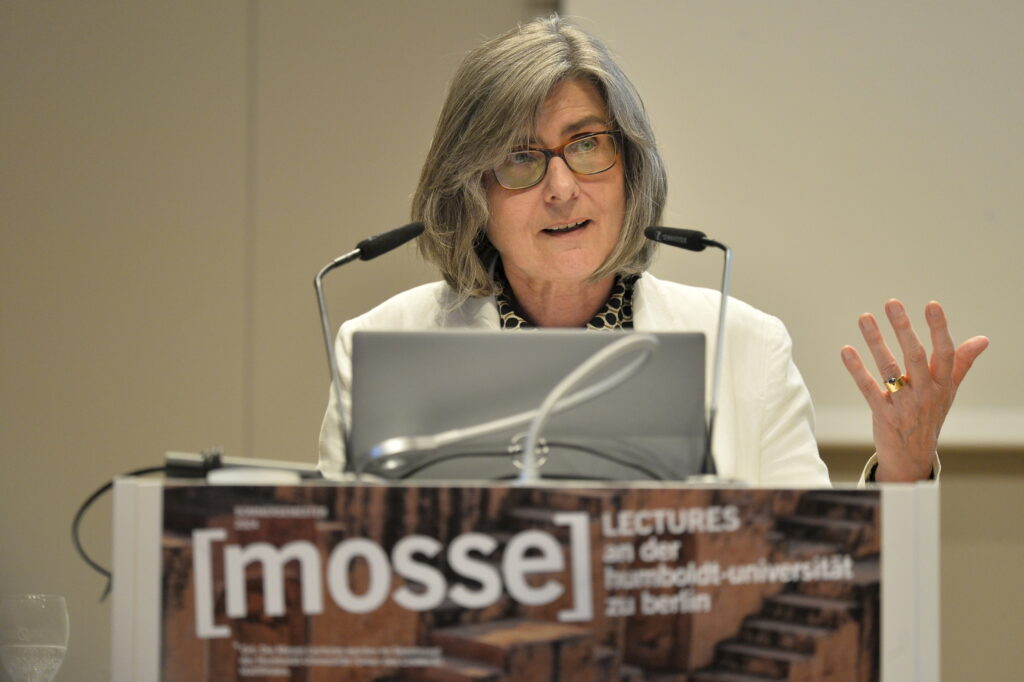
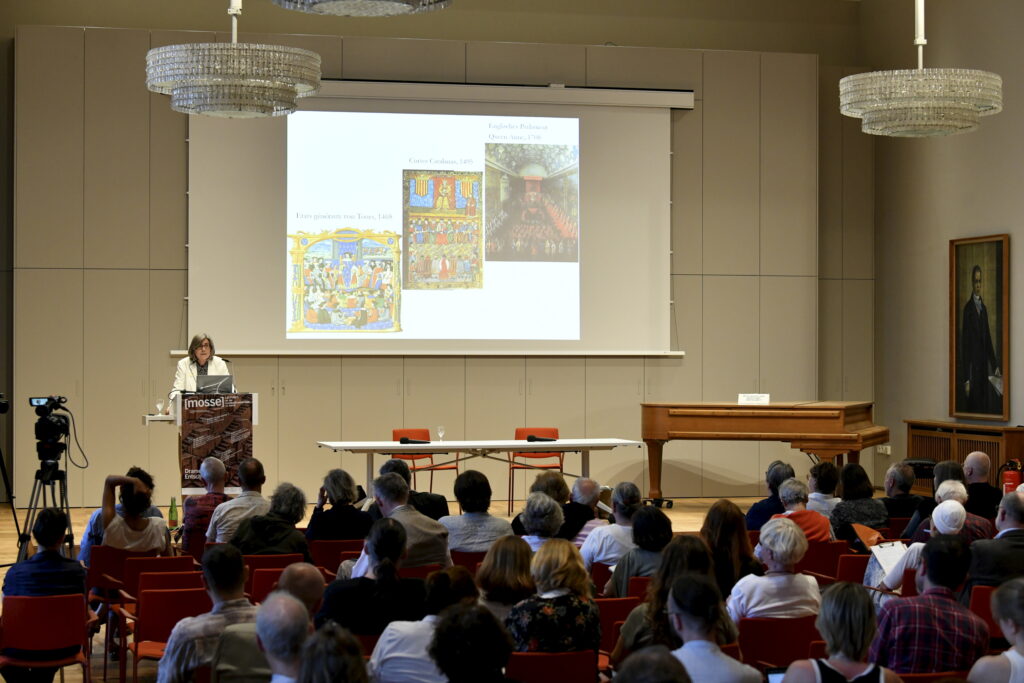
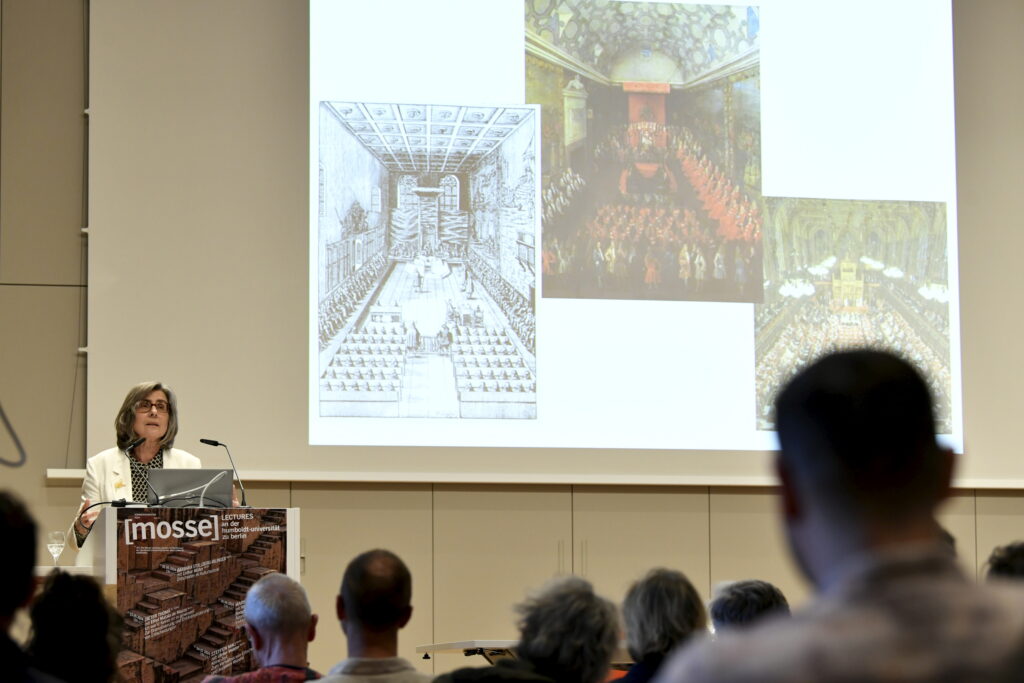
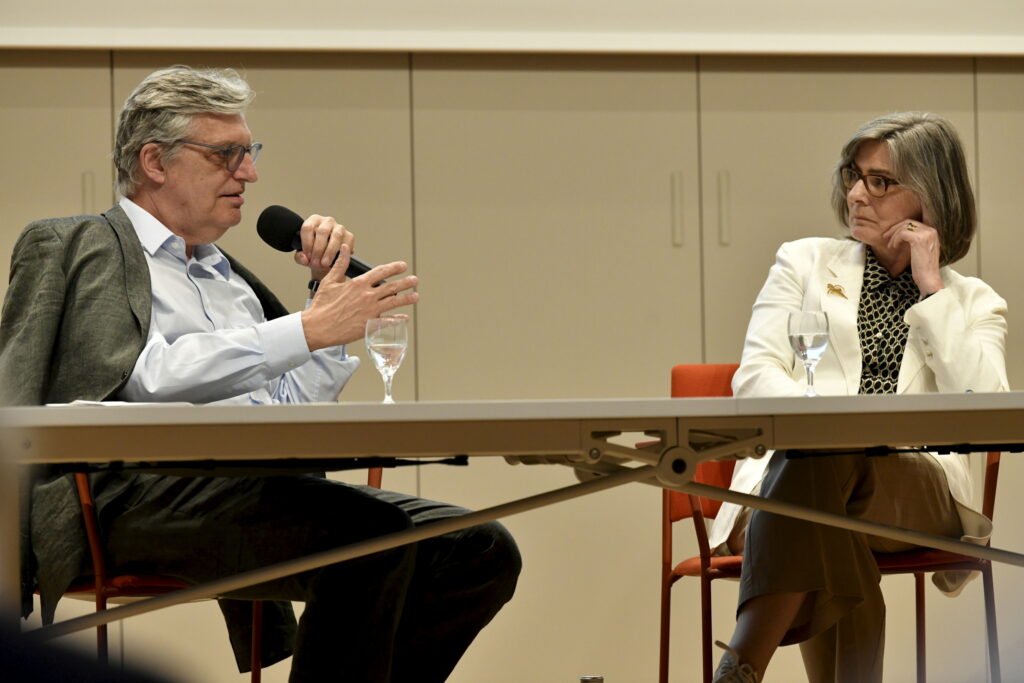
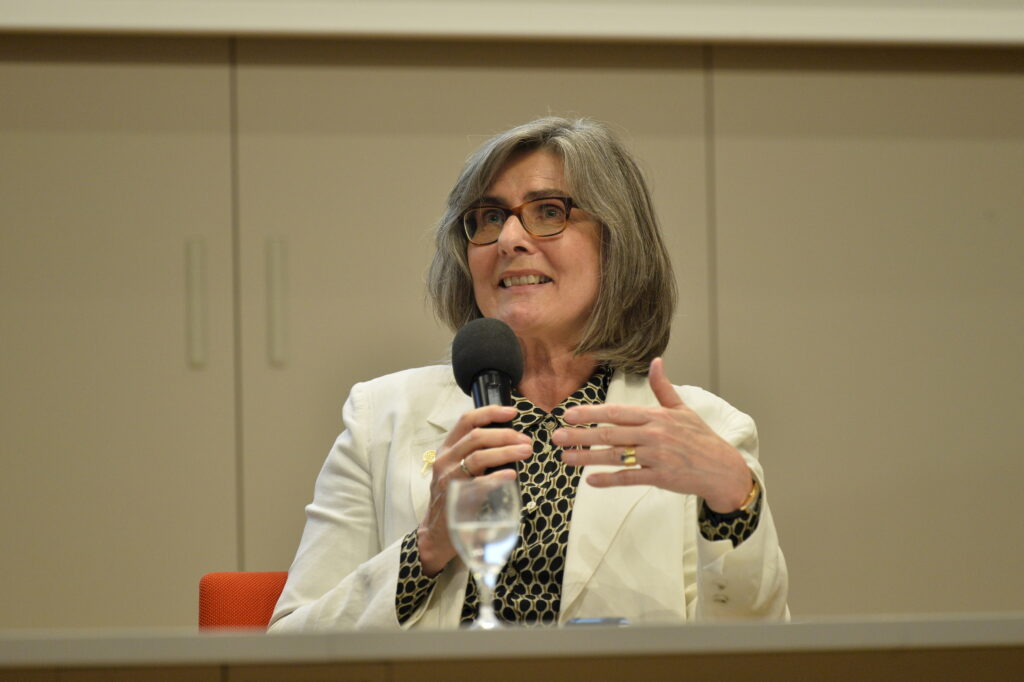
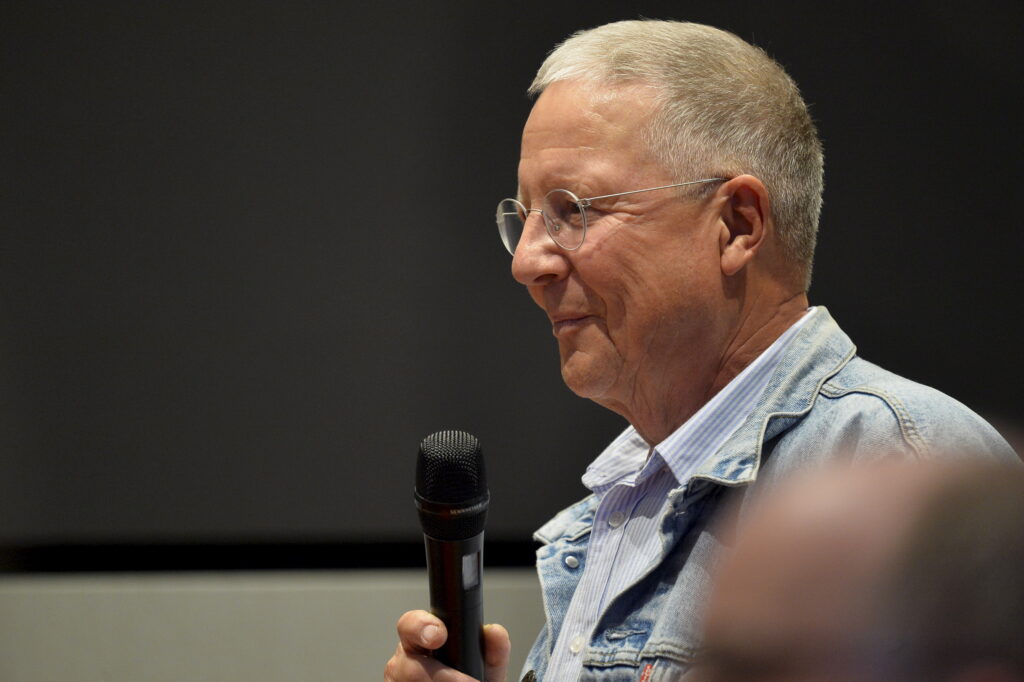
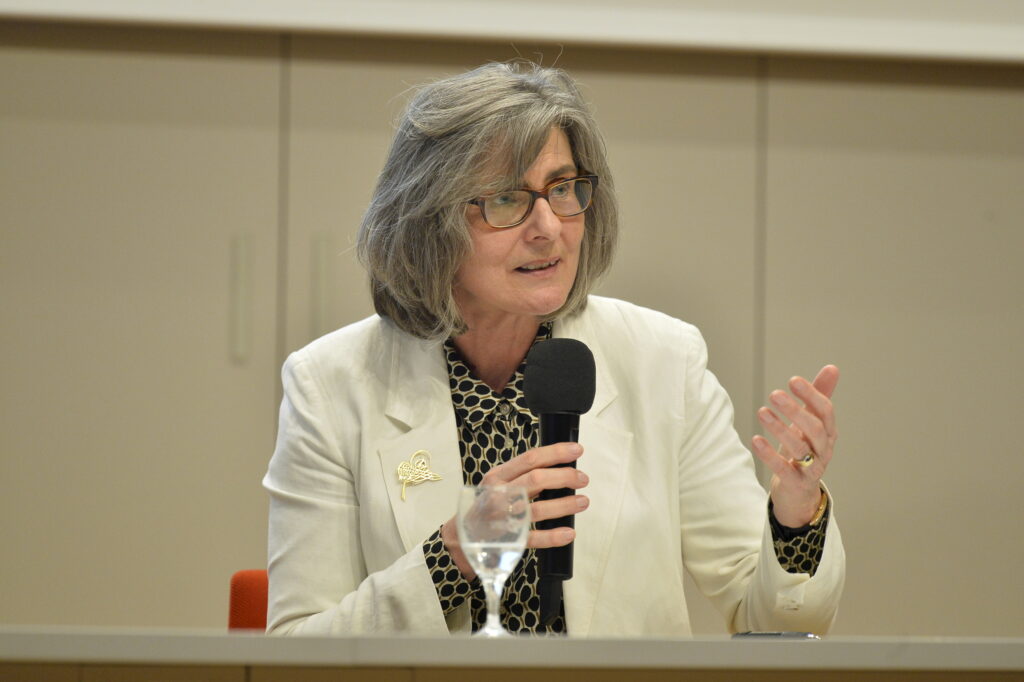
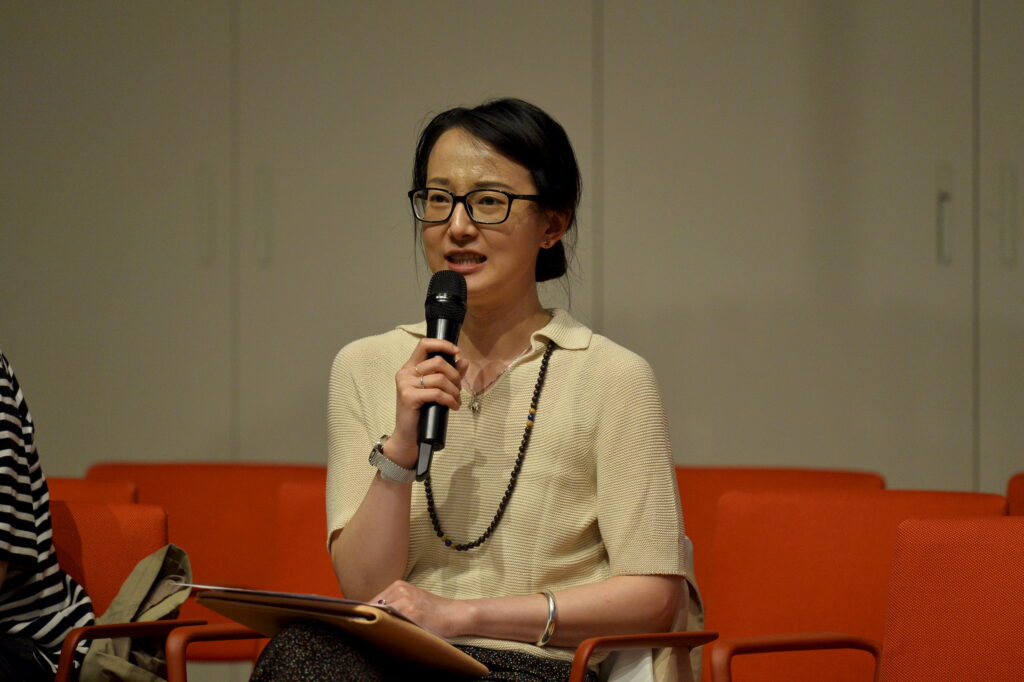
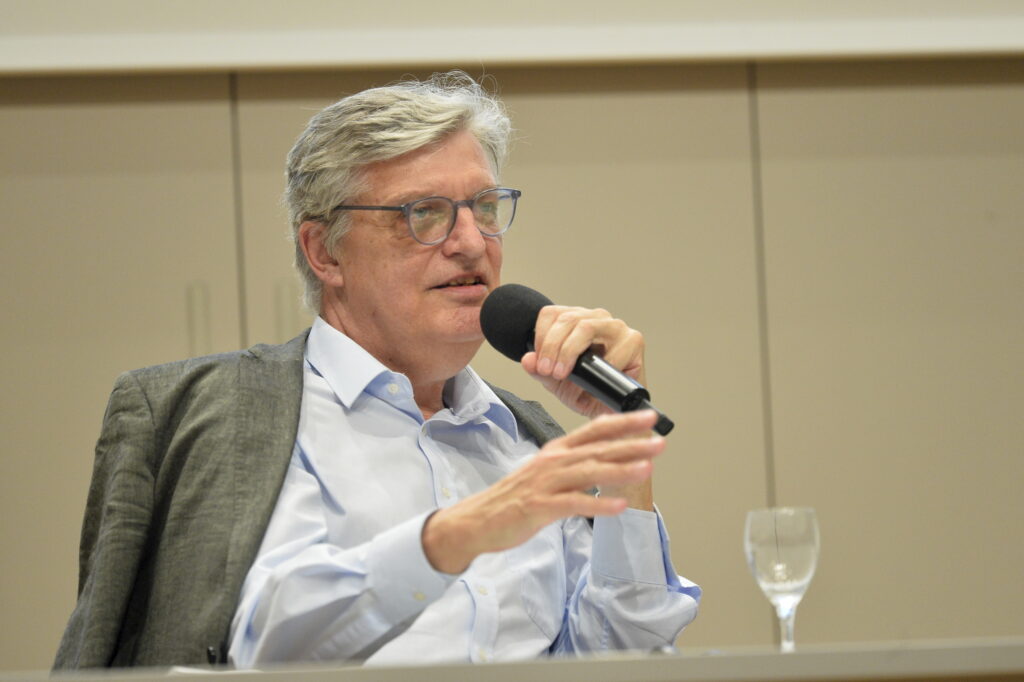
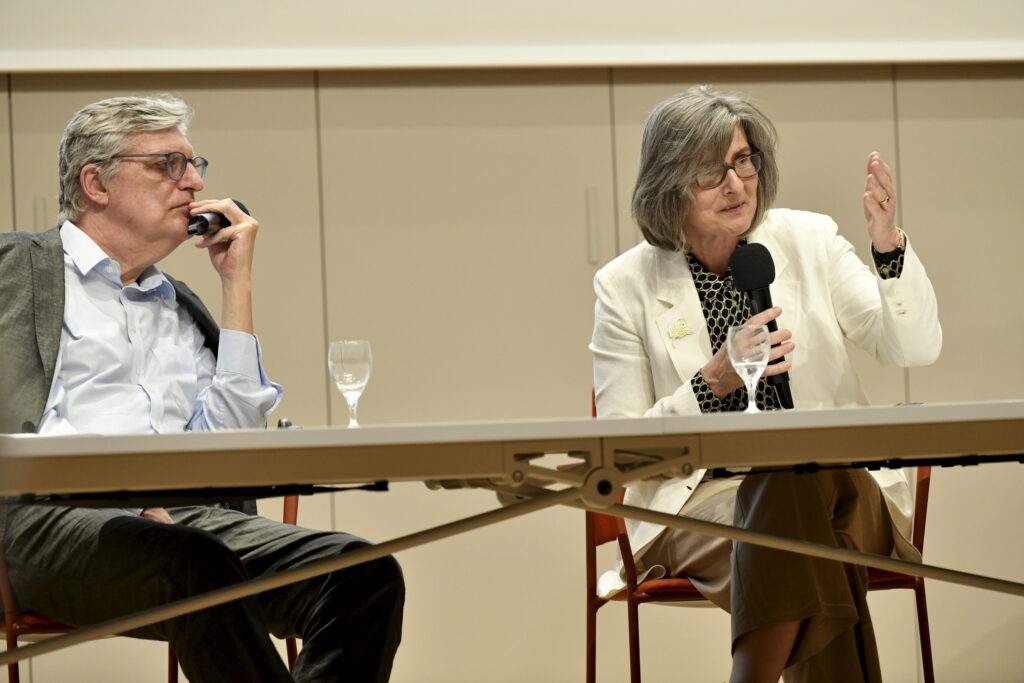
Dieter Thomä
Ich war’s! Keiner ist es gewesen! Zur Dramatisierung und Entdramatisierung von Entscheidungen
with Ethel Matala de Mazza
Thursday, May 23, 2024 | 7:15 p.m. | Senatssaal of Humboldt University, Unter den Linden 6, 10117 Berlin
Two opposing movements can currently be observed: On the one hand, there is a dramatization of individual responsibility and freedom of choice. On the other hand, the scope for decision-making of the individual is being restricted – with reference to structures and processes that are beyond their control. In other words, the constraint of the individual is replaced by the constraint of the factual, and empowerment is replaced by disempowerment. These contemporary diagnostic observations are reflected in systematic findings from action theory and social philosophy. Certain theories of individual freedom and disempowerment are part of the dramatization of decisions, while theories of determinism and the embedding of the individual are part of their de-dramatization. The lecture outlines a critique of this duplication from both a view to our time and in a systematic perspective and develops a model of action and decision inspired by narratology and genealogy.
DIETER THOMÄ: Philosopher, Professor of Philosophy at the University of St. Gallen until 2023; since 2003, he has been co-editor of the »Zur Einführung« series published by Junius; Thomä has been a fellow at the Wissenschaftskolleg zu Berlin, the Institute for Advanced Study in Princeton and a visiting professor at Brown and Yale University; his work focuses on social philosophy, ethics, cultural philosophy, political philosophy and phenomenology as well as – in all these areas – the Socratic question of »how to live«; Dieter Thomä is the author of numerous monographs that have been translated into several languages.
gallery:
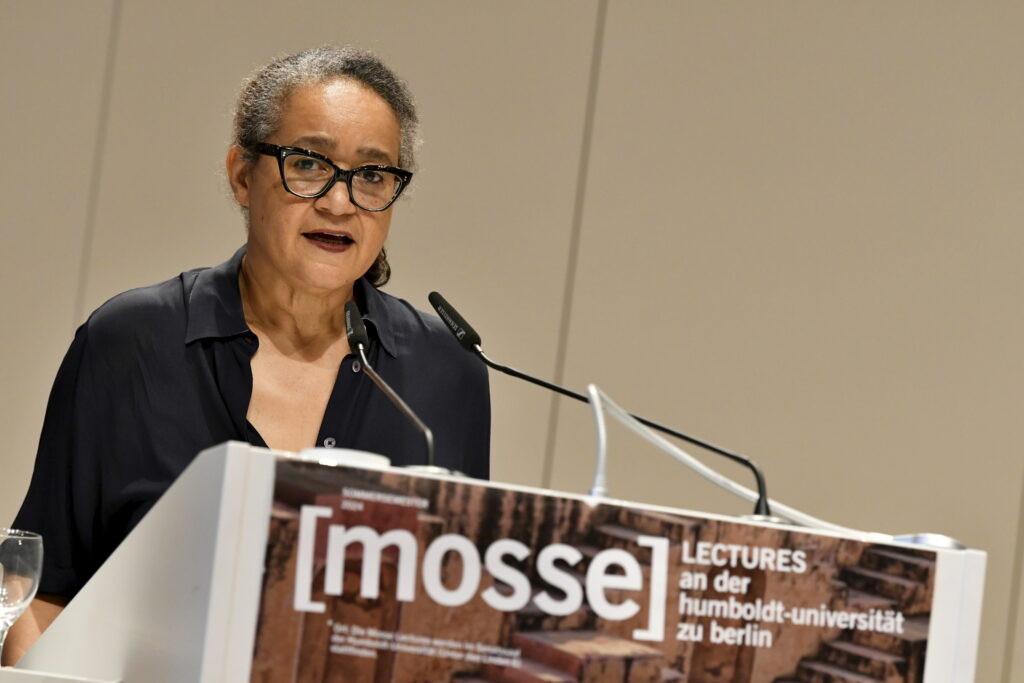
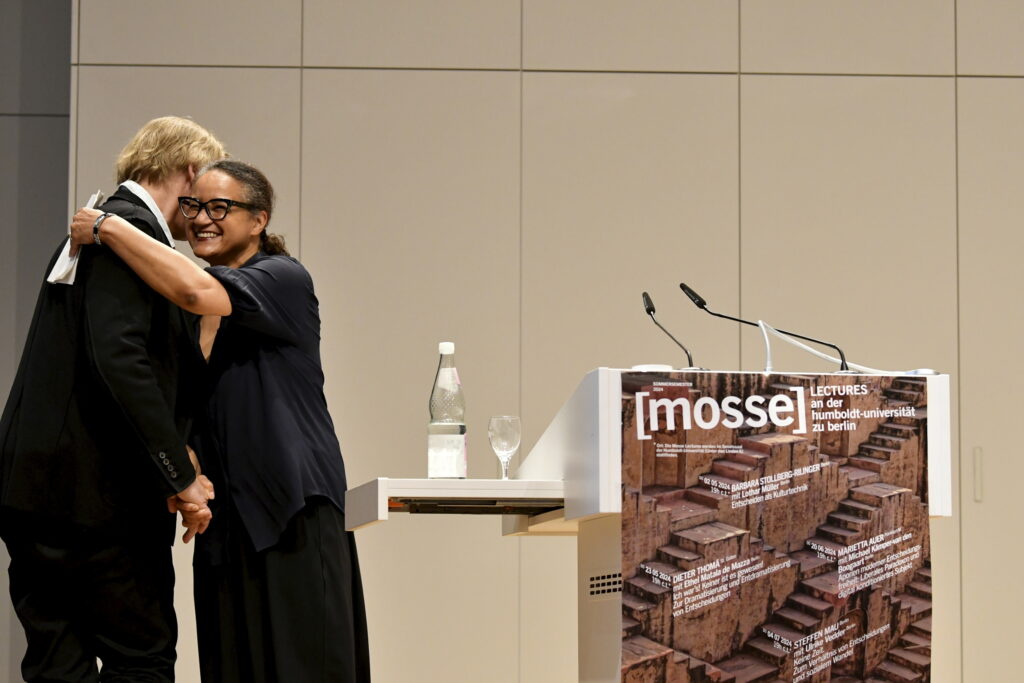
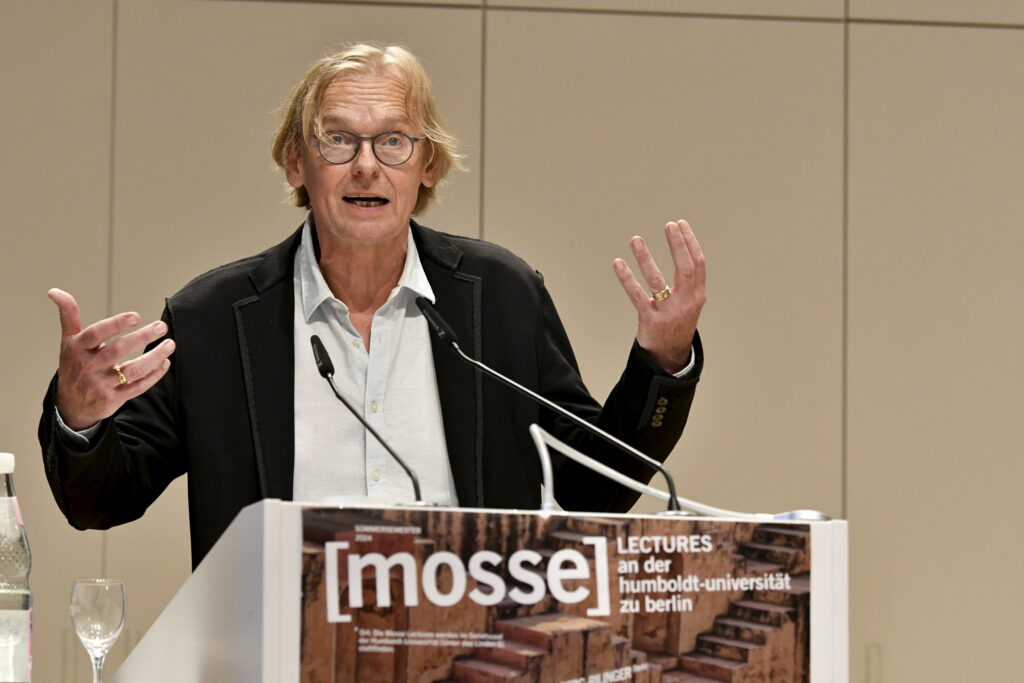
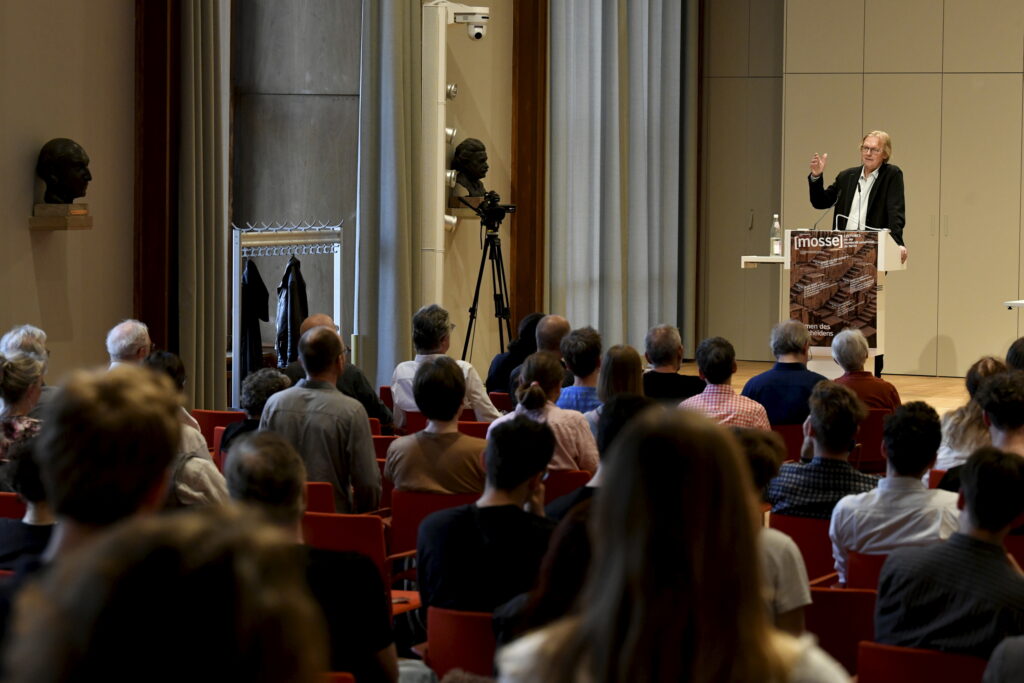
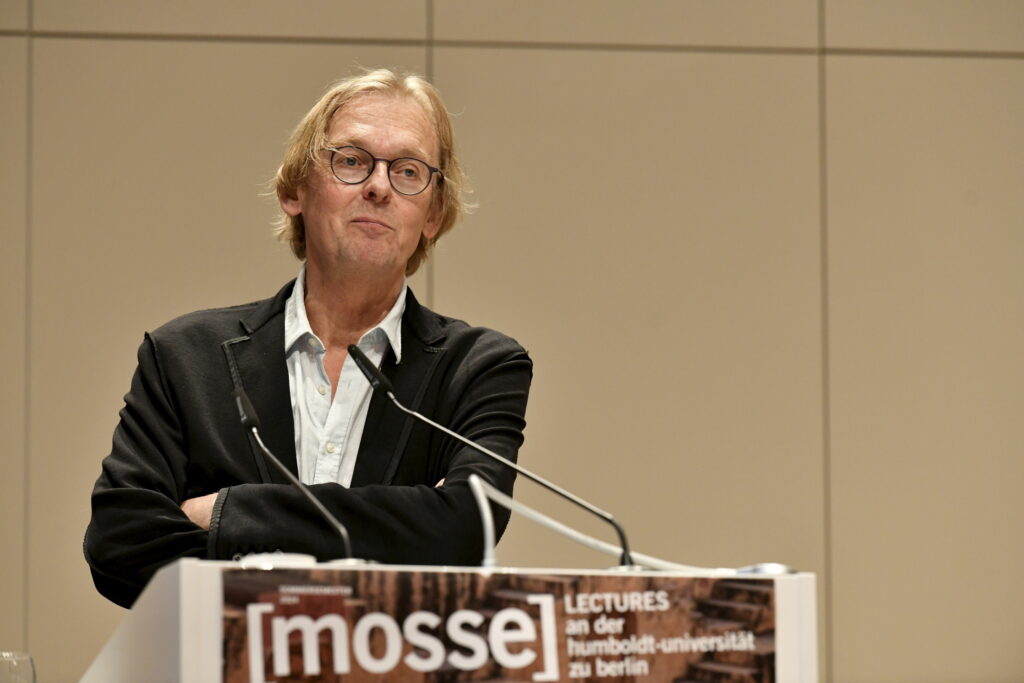
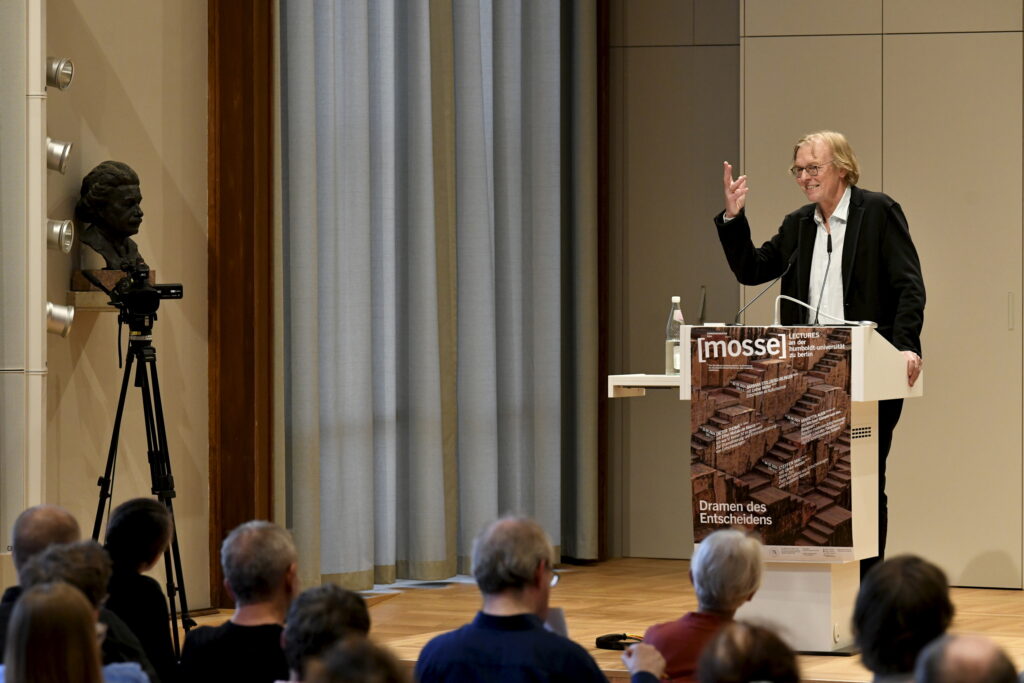
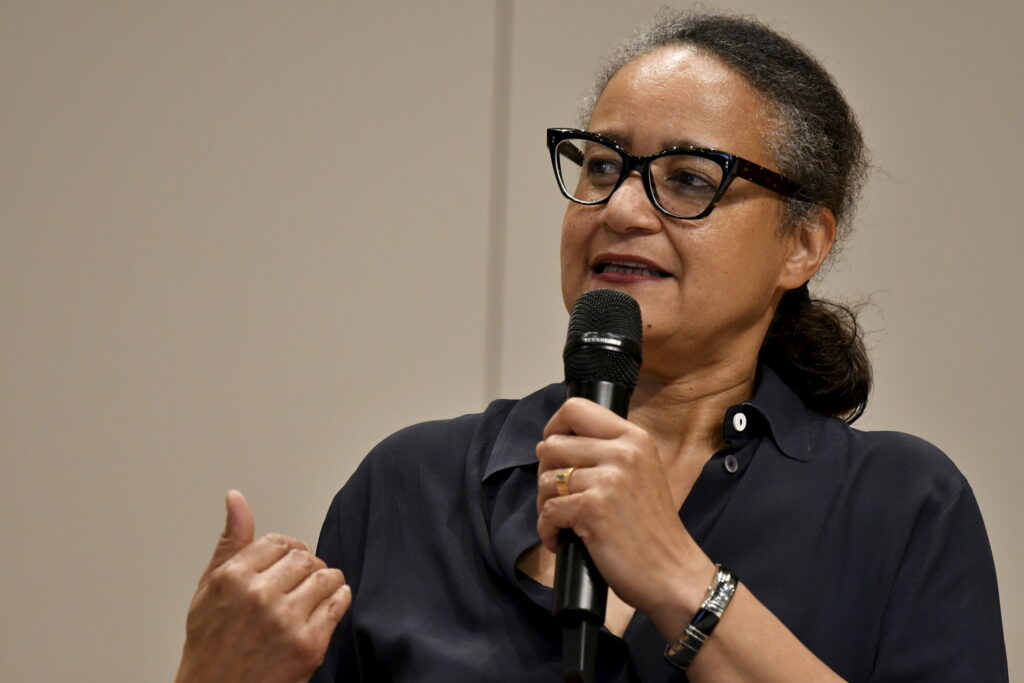
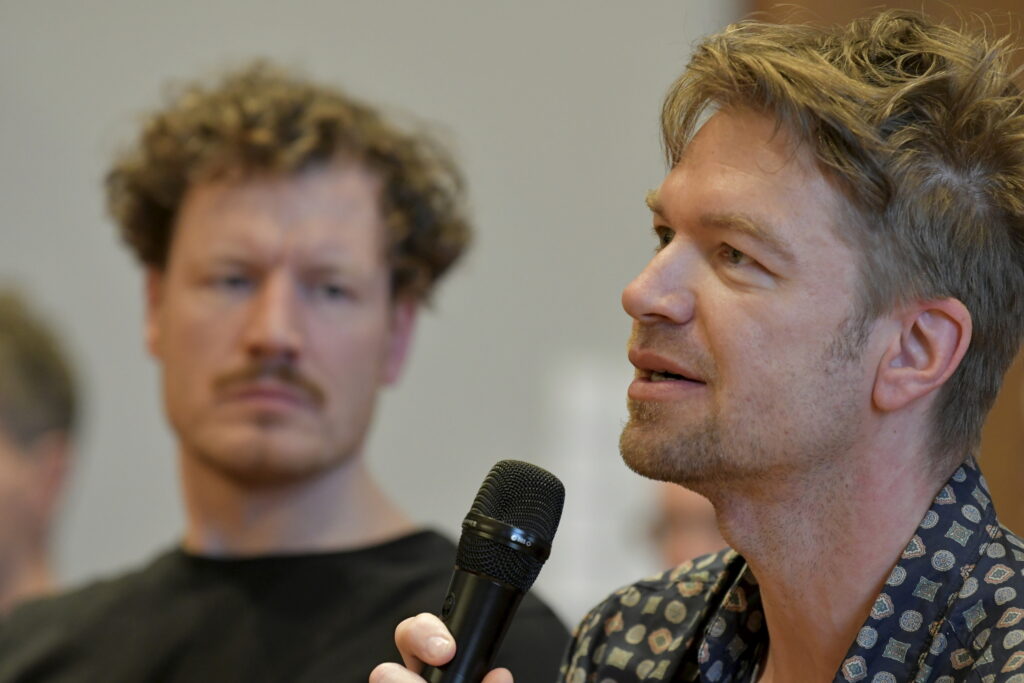
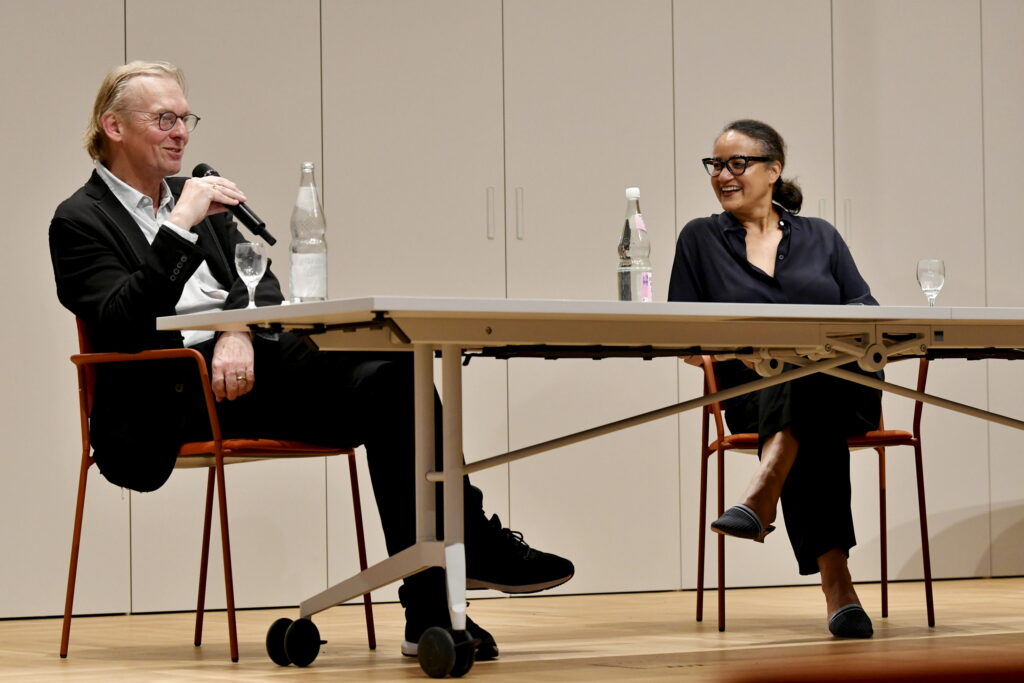
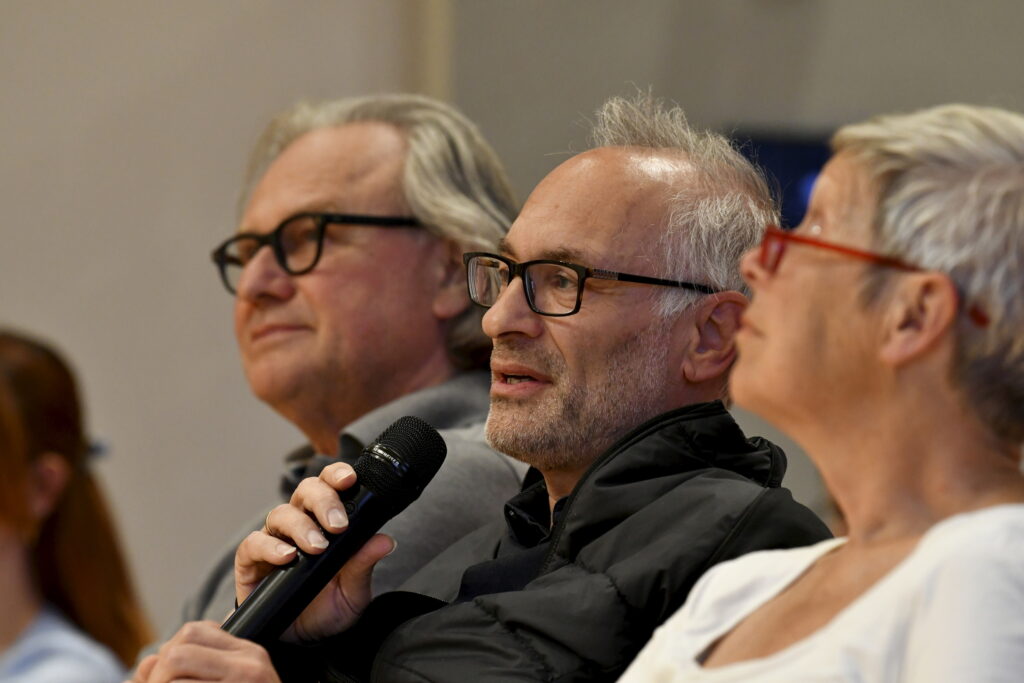
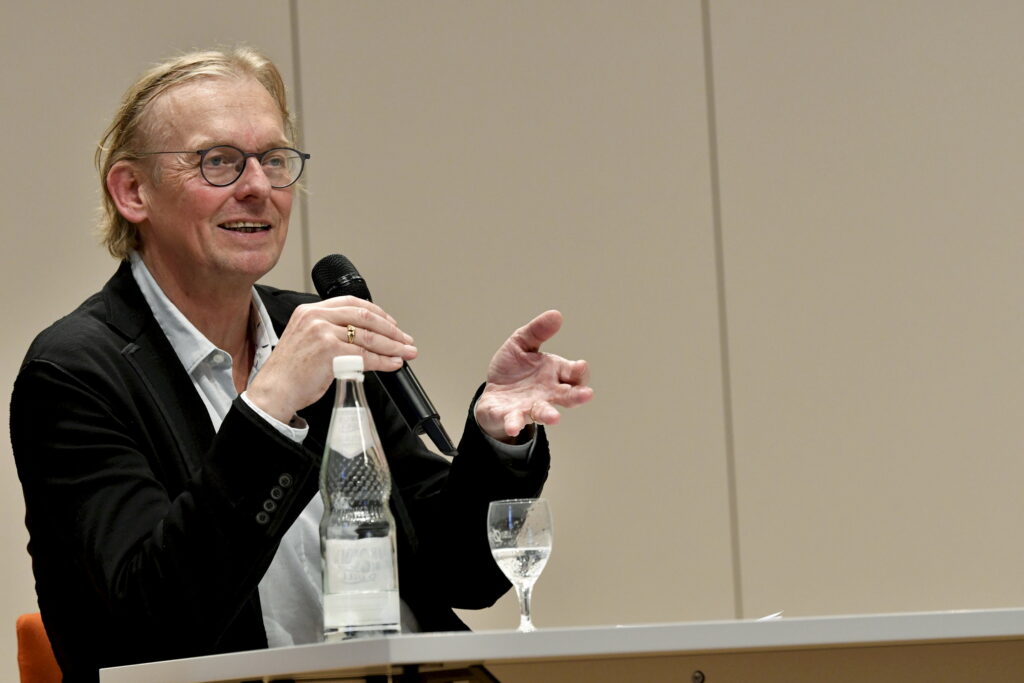
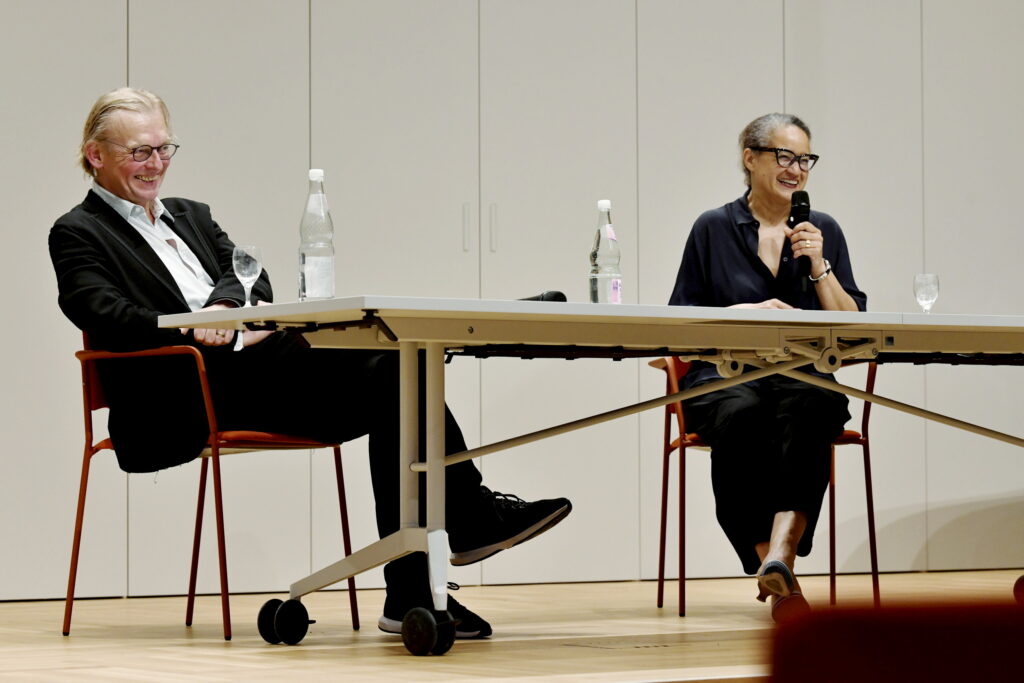
Marietta Auer
Aporien moderner Entscheidungsfreiheit: Liberales Paradoxon und digital konditioniertes Subjekt
with Michael Kämper-van den Boogaart
Thursday, June 20, 2024 | 7:15 p.m. | Senatssaal of Humboldt University, Unter den Linden 6, 10117 Berlin
The lecture sheds light on the drama of collective decision-making in the liberal democracies of the West from two perspectives. On the one hand, it has been increasingly apparent for some time that consensus on common values and interests can no longer be reached on fundamental questions of coexistence. This is not a new phenomenon, but rather the classic »liberal paradox«: liberal democracies have no overriding decision-making rule to establish a consensus on the subject of political consensus. It is therefore no coincidence that problems such as »How much freedom for the enemies of freedom?« characterize public discourse. On the other hand, it is precisely these fundamental decision-making problems of liberal democracies that are experiencing a fatal self-reinforcement in the echo chambers of the Internet. Today, collective decision-making processes no longer suffer only from the incommensurability of individual self-designs, but rather from the digital conditioning of public discourse, which can no longer fulfill its function as a forum of collective rationality. Digitally conditioned subjects contribute to undermining the institutions of liberal society and increasing the explosive force of the liberal paradox.
MARIETTA AUER: Legal scholar, Director of the Max Planck Institute for Legal History and Legal Theory; from 2013-2020 Professor of Civil Law and Philosophy of Law at Justus Liebig University Giessen; Auer was a Fellow at the Wissenschaftskolleg zu Berlin and received the Gottfried Wilhelm Leibniz Prize of the German Research Foundation in 2022; her work and research focuses on private law and the multidisciplinary foundations of law, the sociological and philosophical history of ideas of private law, the theory of private law and the legal doctrine of civil law; her most recent publication is the volume »Zum Erkenntnisziel der Rechtstheorie«.
gallery:
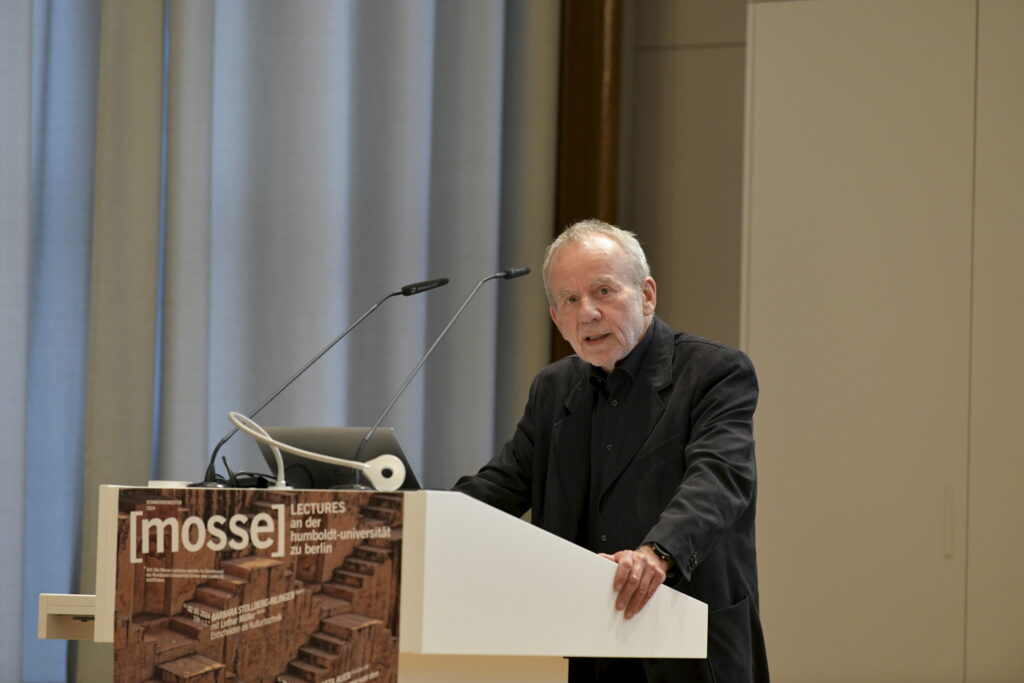
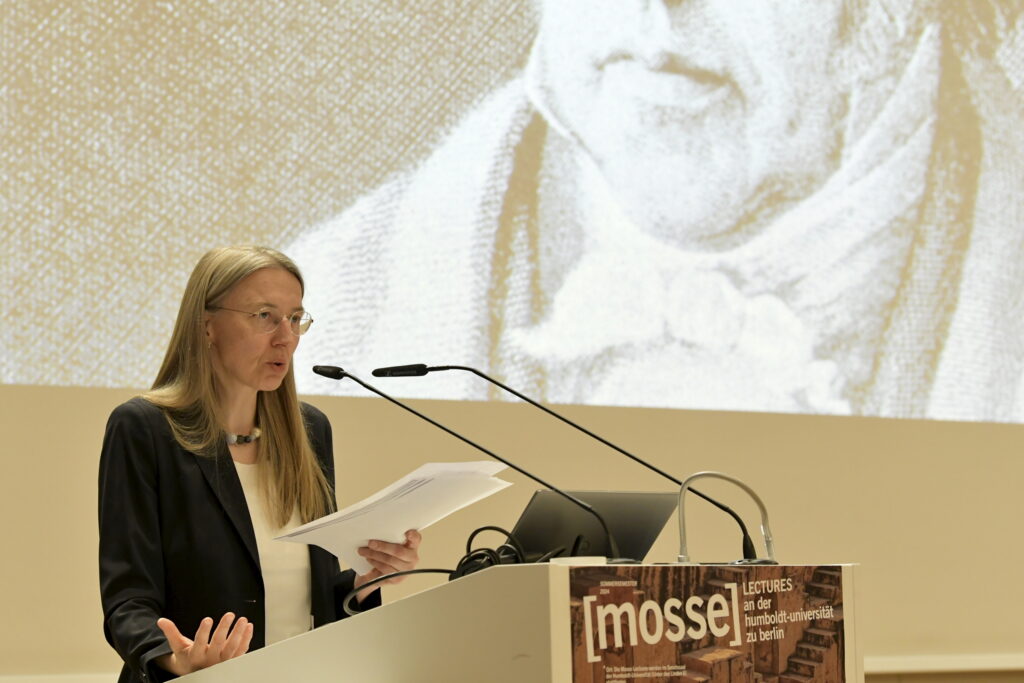
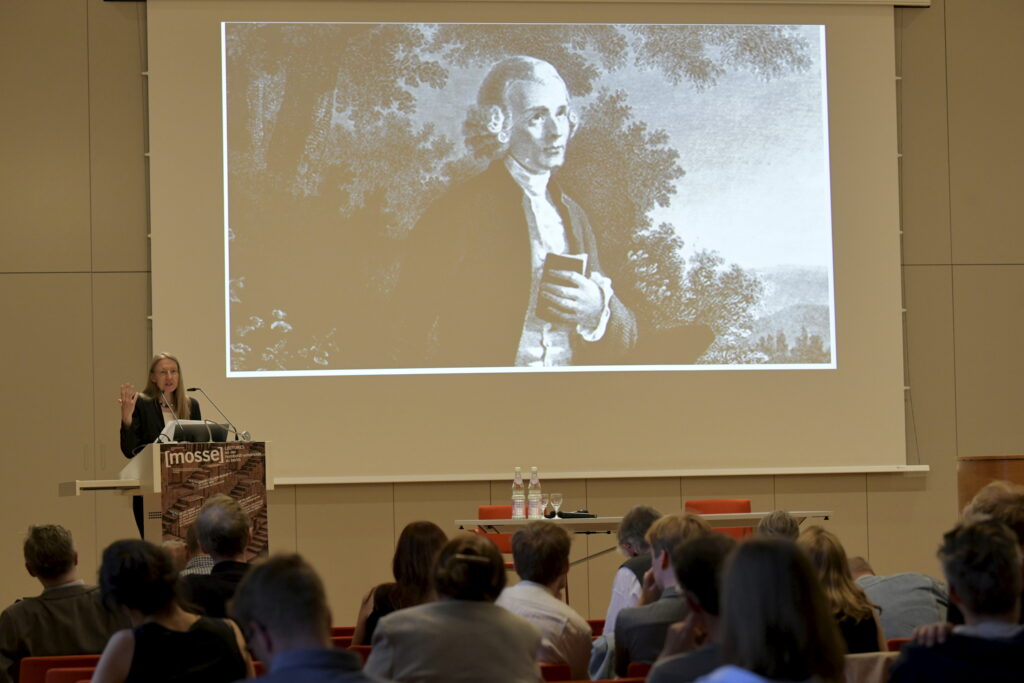
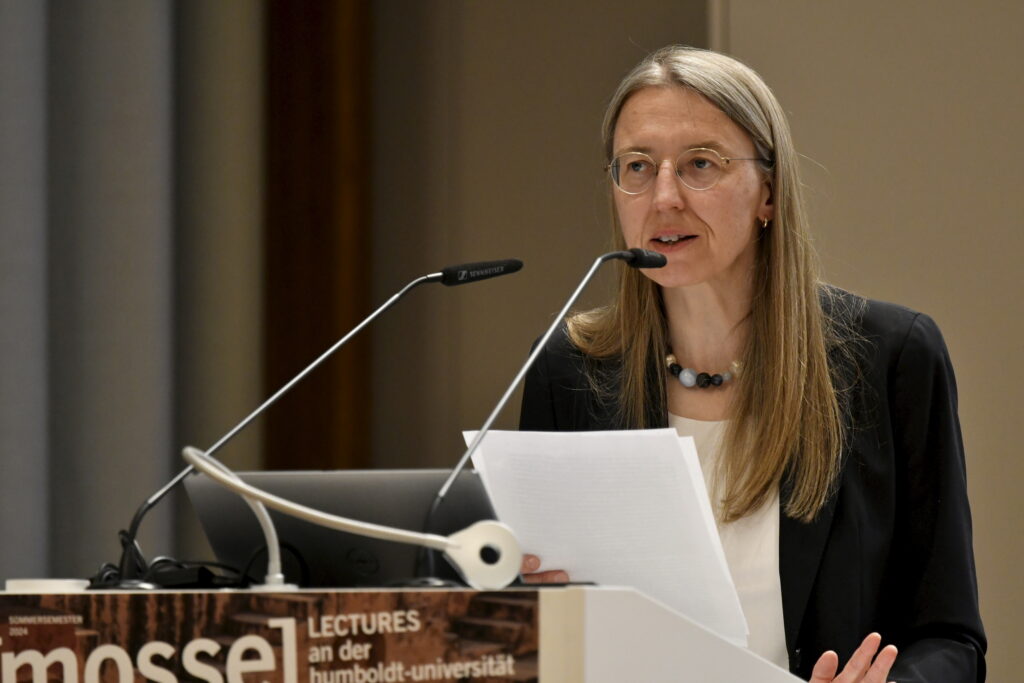
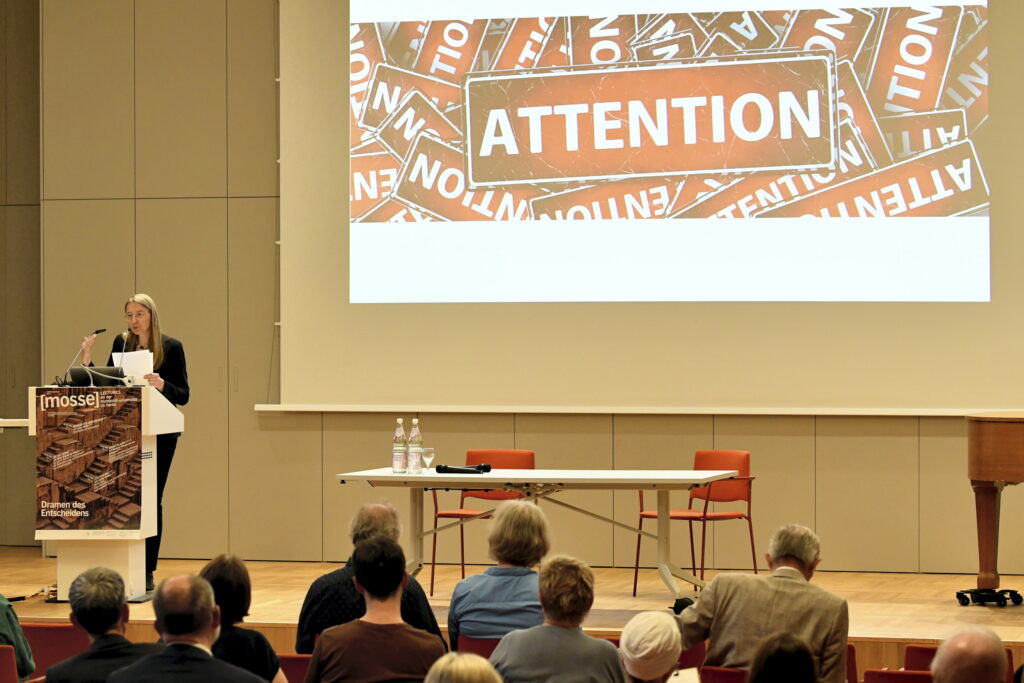
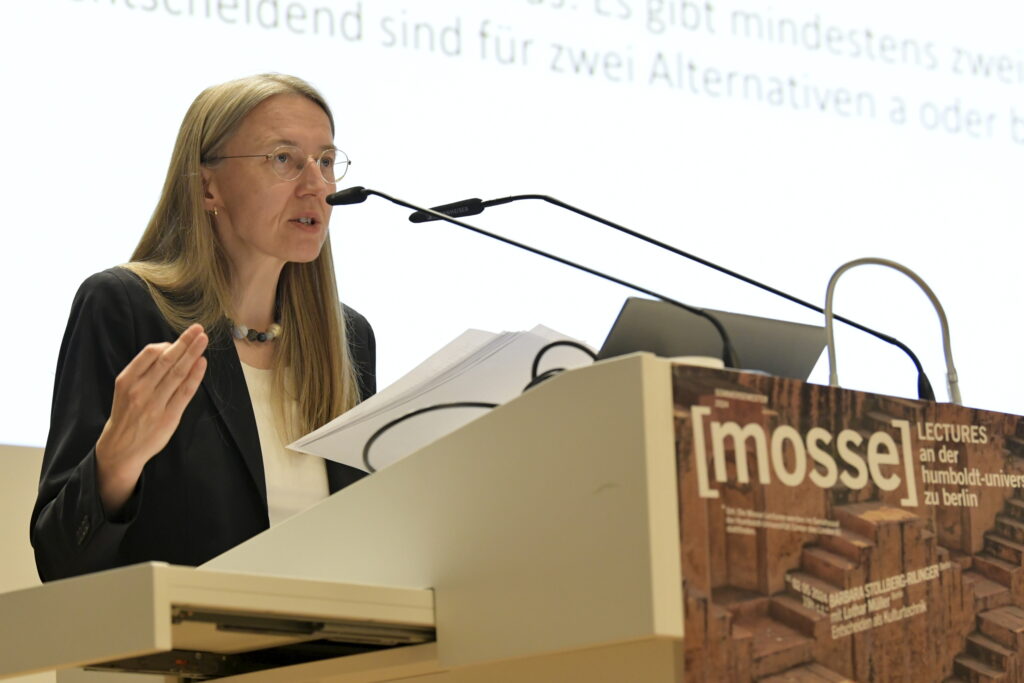
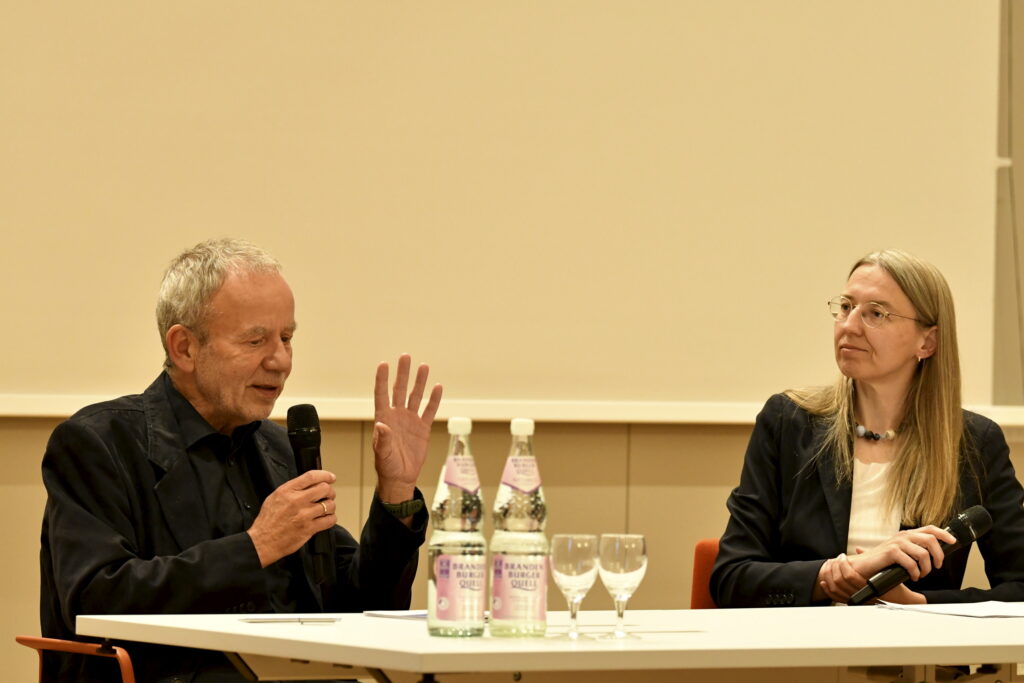
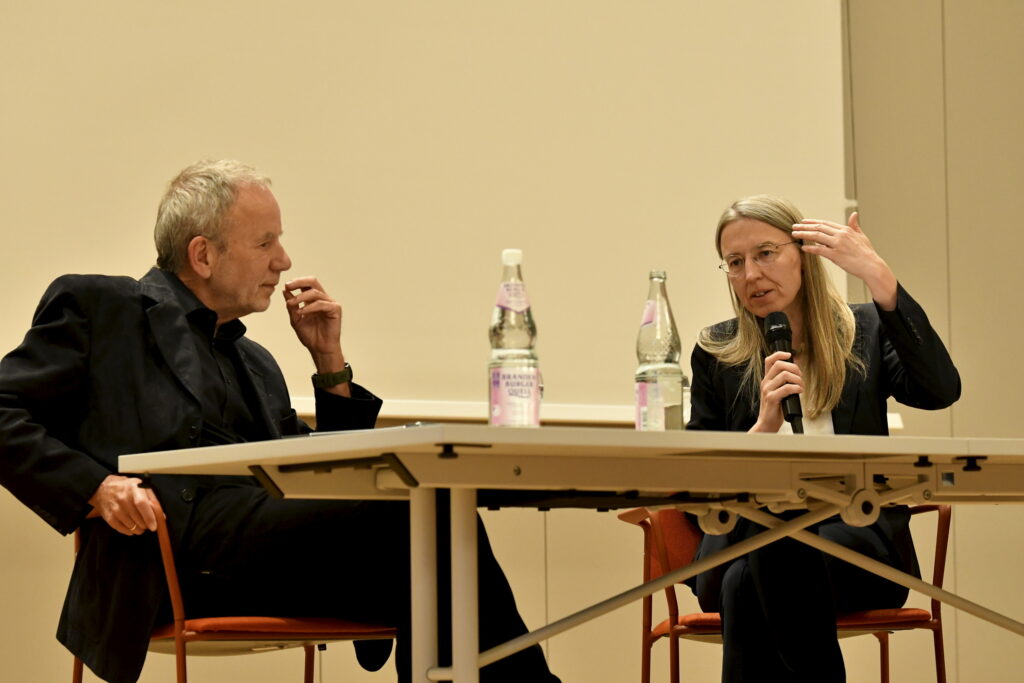
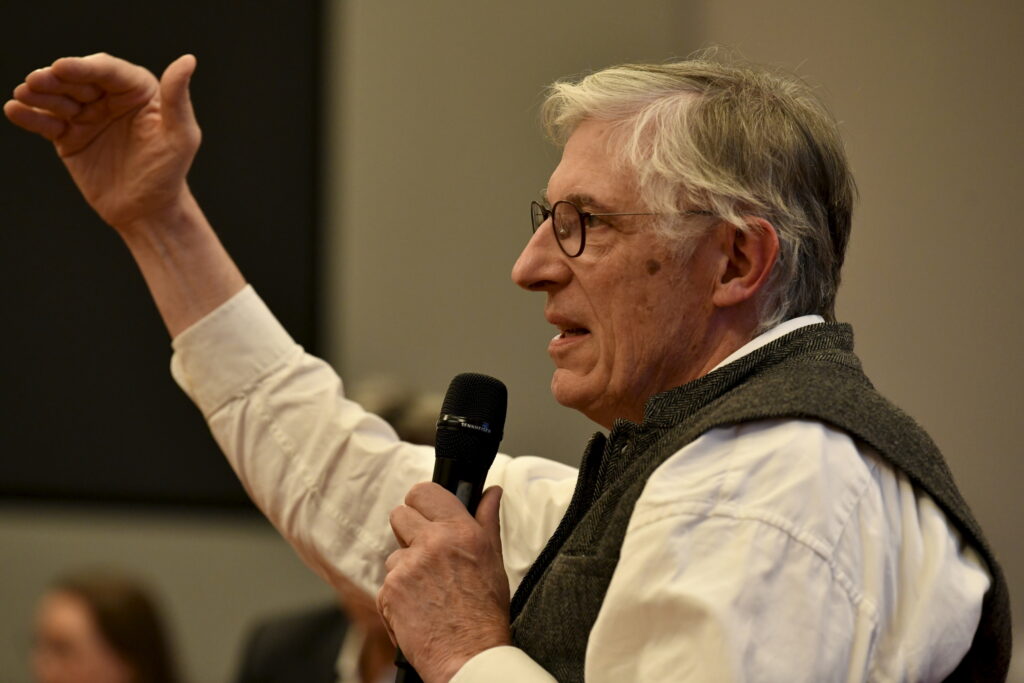
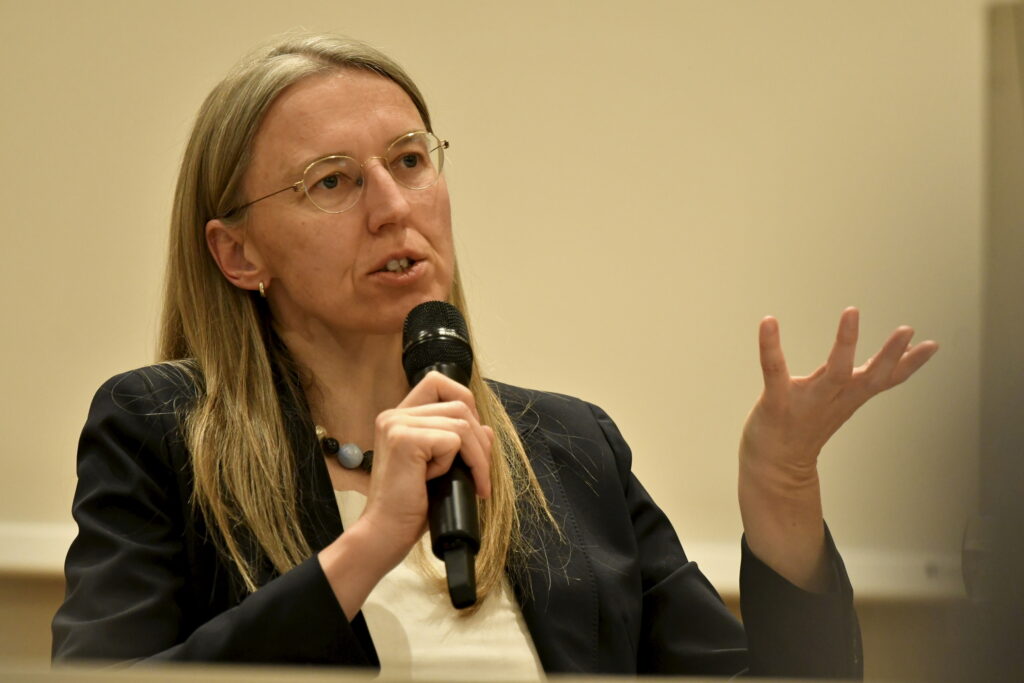
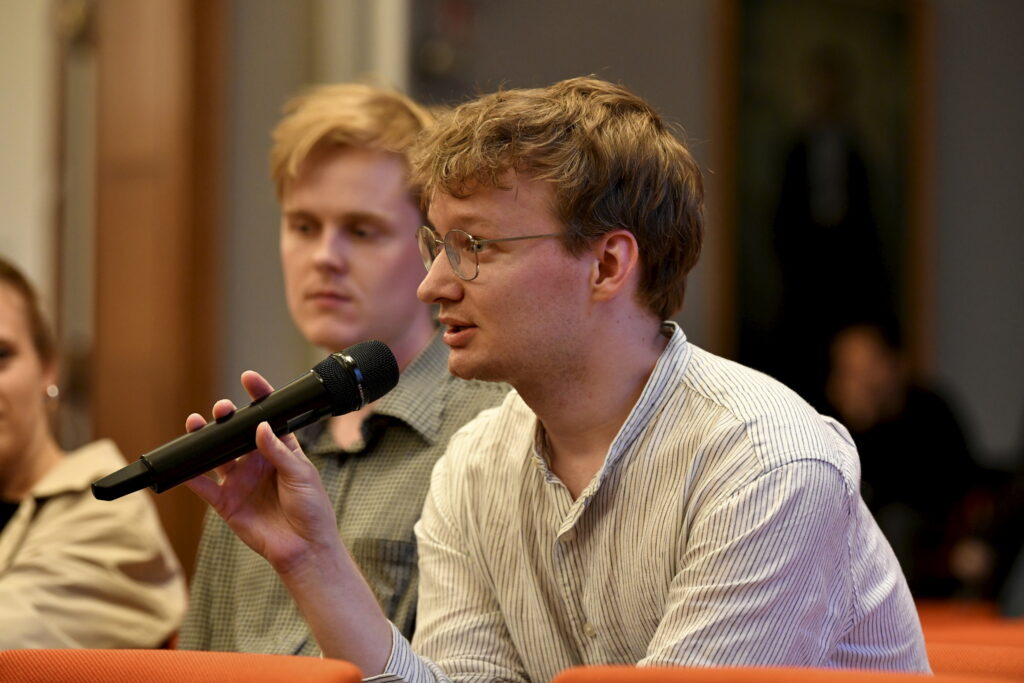
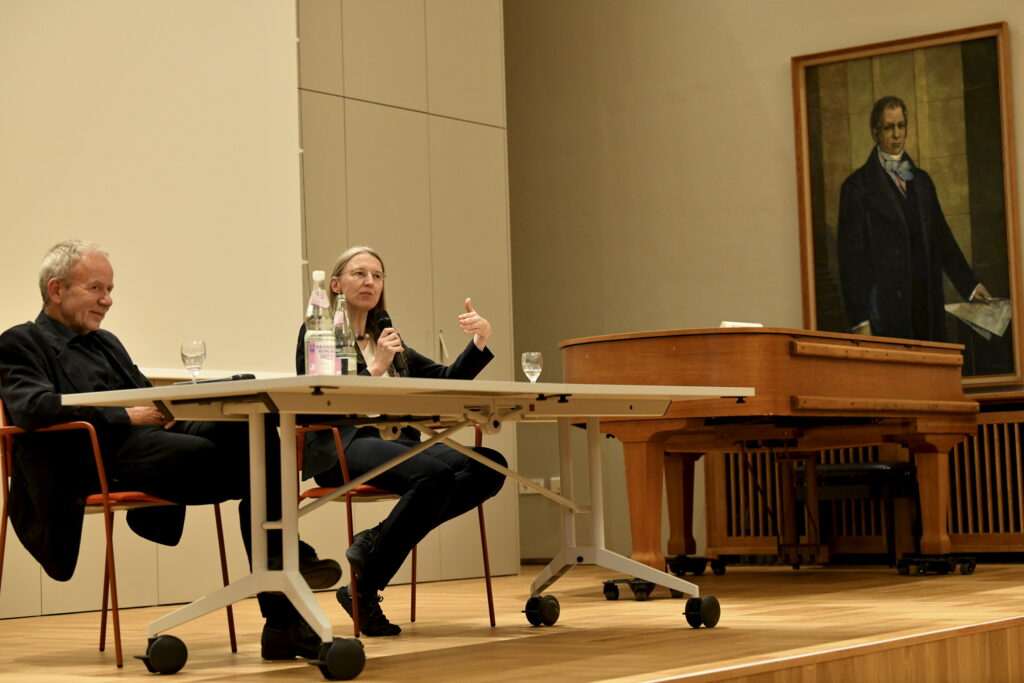
Steffen Mau
Keine Zeit. Zum Verhältnis von politischen Entscheidungen und sozialem Wandel
with Ulrike Vedder
Thursday, July 04, 2024 | 7:15 p.m. | Senatssaal of Humboldt University, Unter den Linden 6, 10117 Berlin
Organizing and coping with accelerated social change puts societies under stress. Unlike in relatively static societies with established arrangements and pacifying formulas, many conflicts break out in societies undergoing change. At the same time, politicians are under pressure to make quick decisions and set the course if they do not want to be overrun by the course of events. The lecture addresses the relationship between political decisions and social change. It discusses the problems of both early and delayed decisions and the different pace of society and politics. The examples of the East German transformation from 1989 onwards and the socio-ecological transformation will be used to illustrate the preconditions, side effects and long-term consequences of political decisions.
STEFFEN MAU: Sociologist, Professor of Macrosociology at Humboldt University; in 2022/23 he was a member of the »Future of Work« working group at the Berlin-Brandenburg Academy of Sciences and Humanities as well as on the jury for the location competition for the Future Center for German Unity and European Transformation and received the Leibniz Prize of the German Research Foundation in 2021; his research includes social inequality, transnationalization, European migration and integration, political sociology, the sociology of borders and digitalization; his most recent publication is the volume »Ungleich vereint: Warum der Osten anders bleibt«.
gallery:
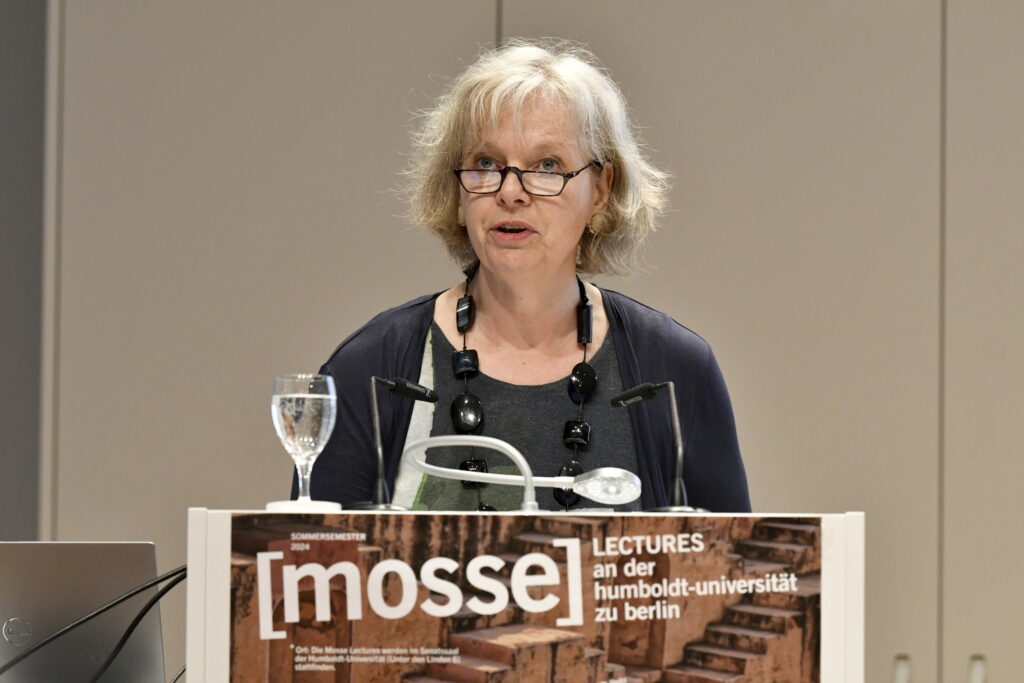
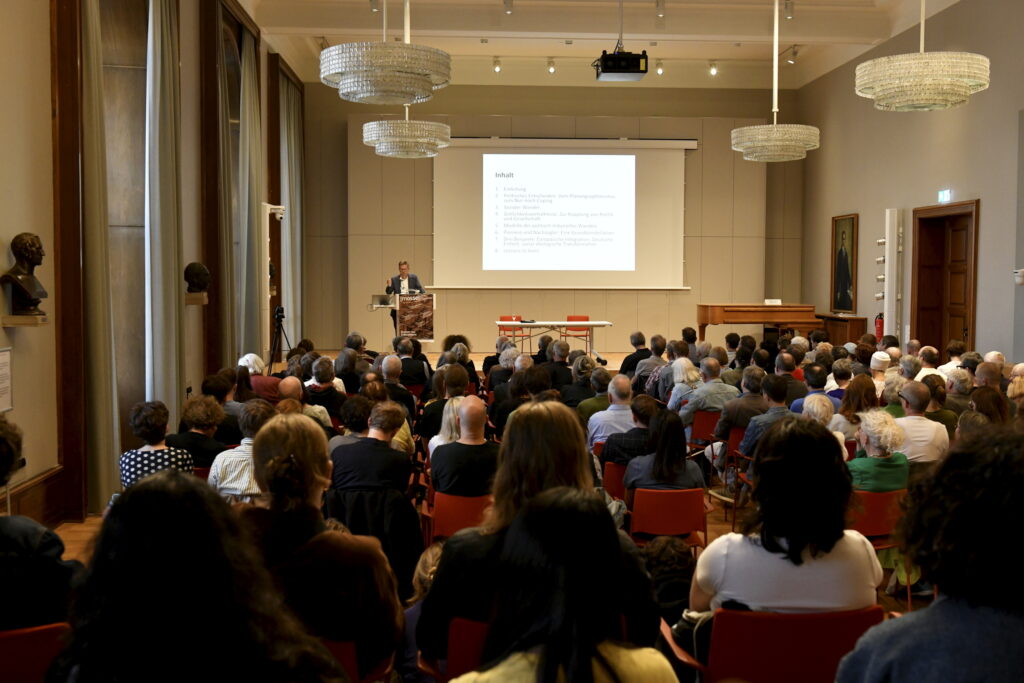
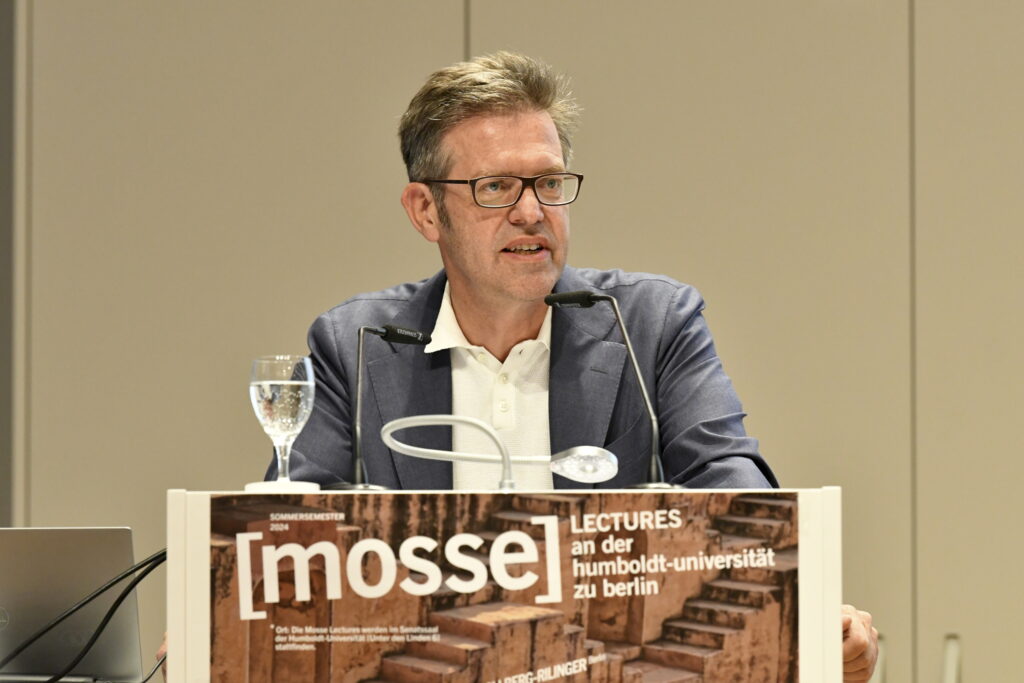
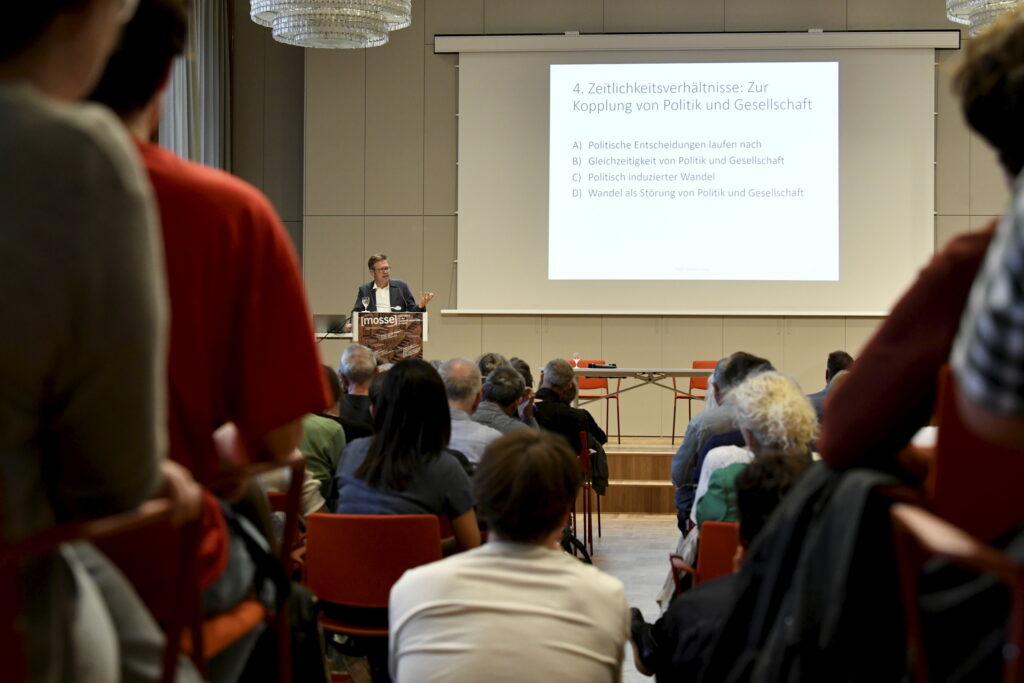
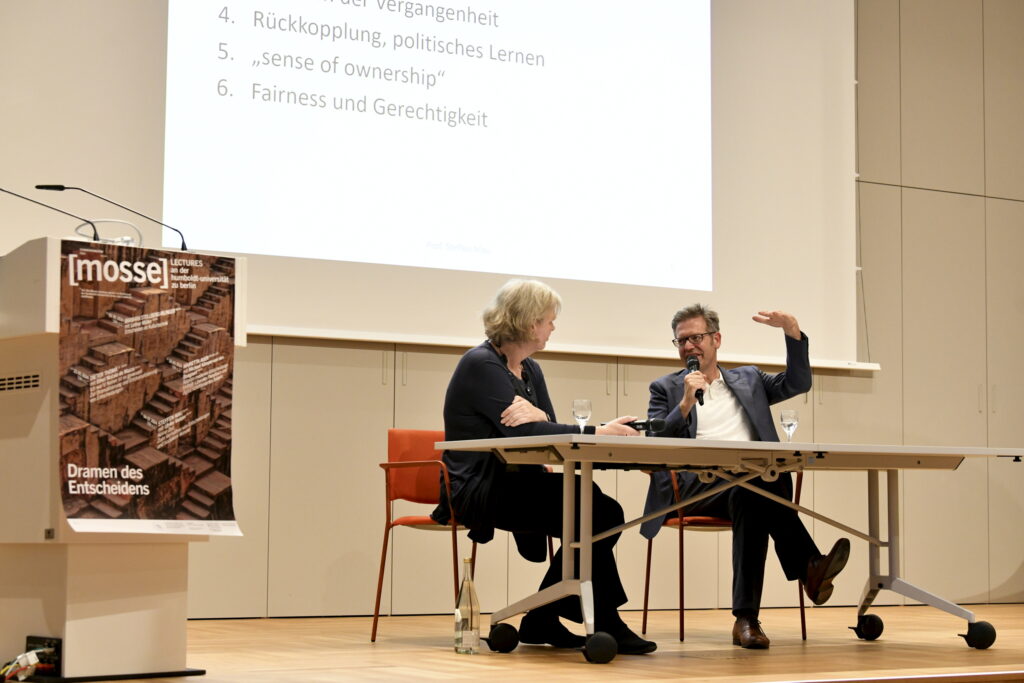
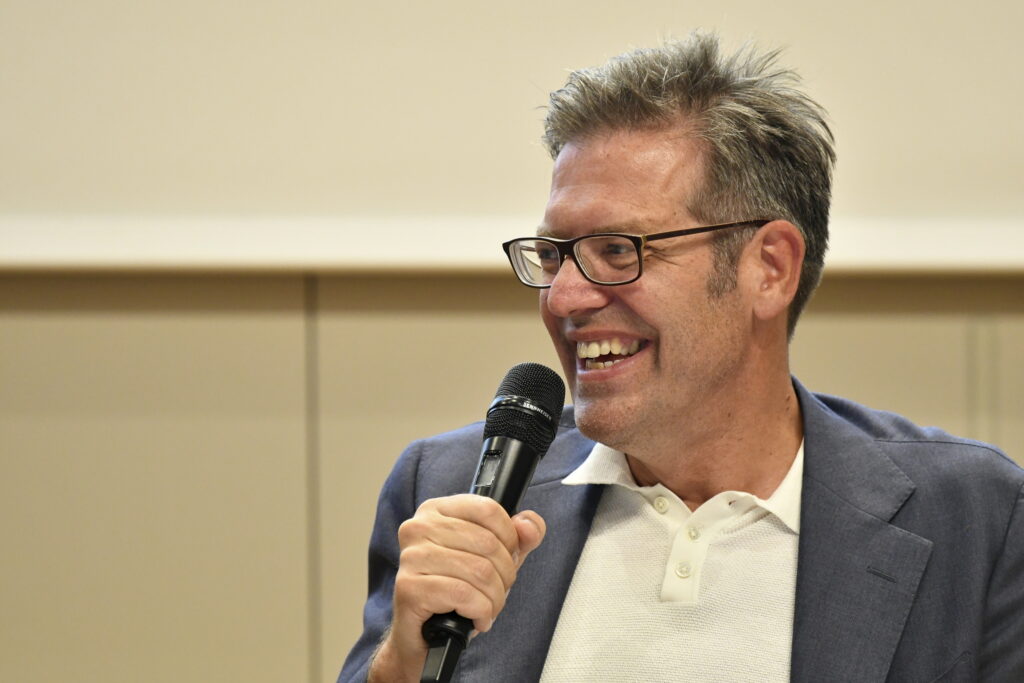
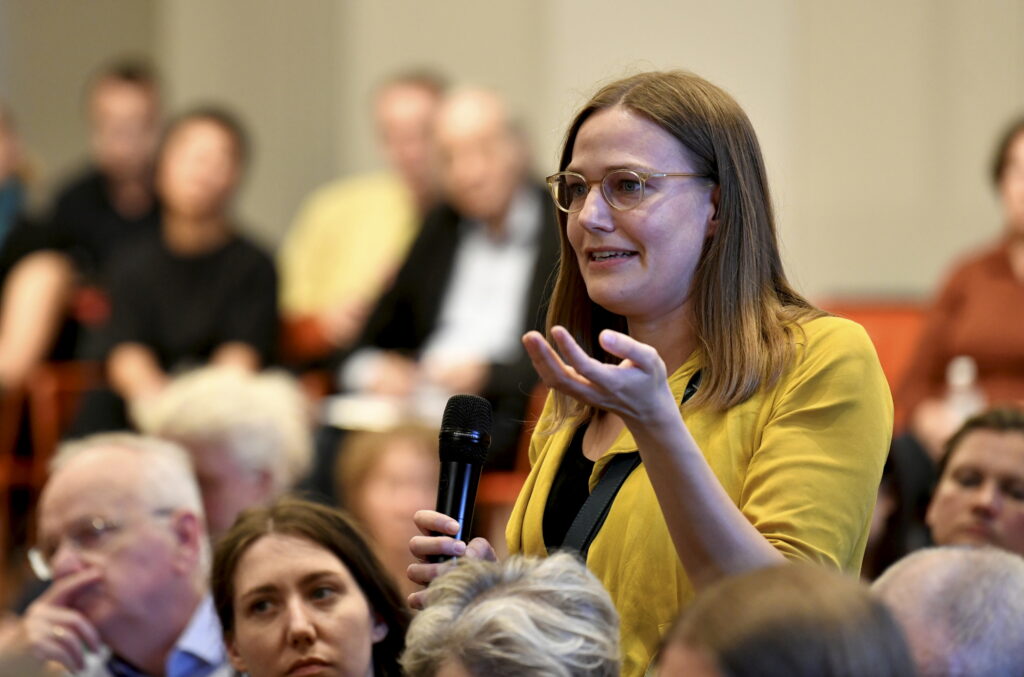
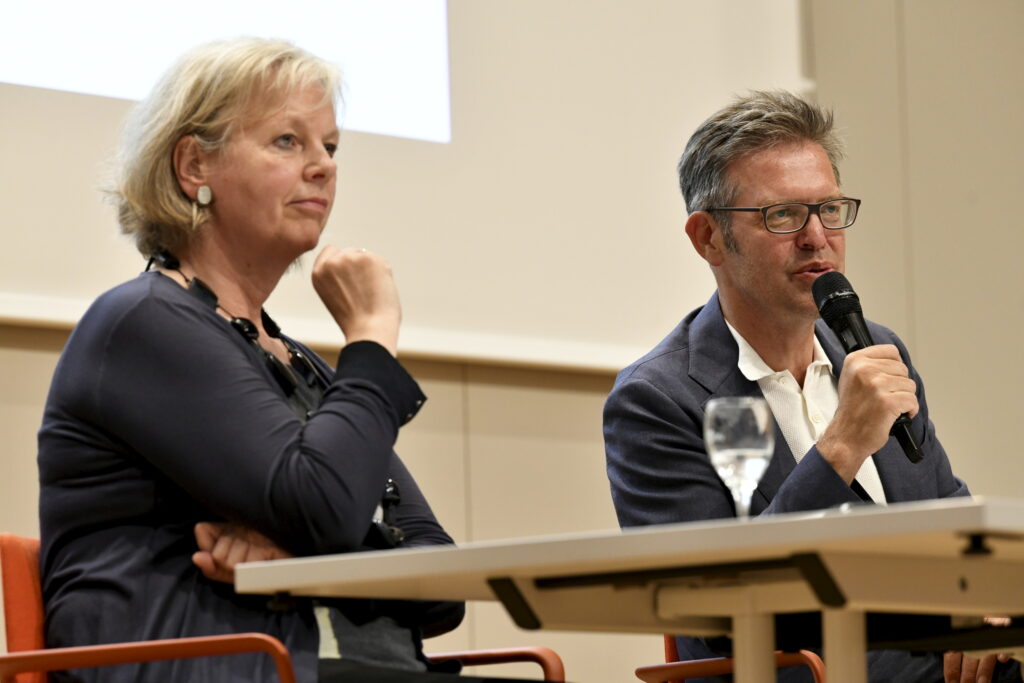
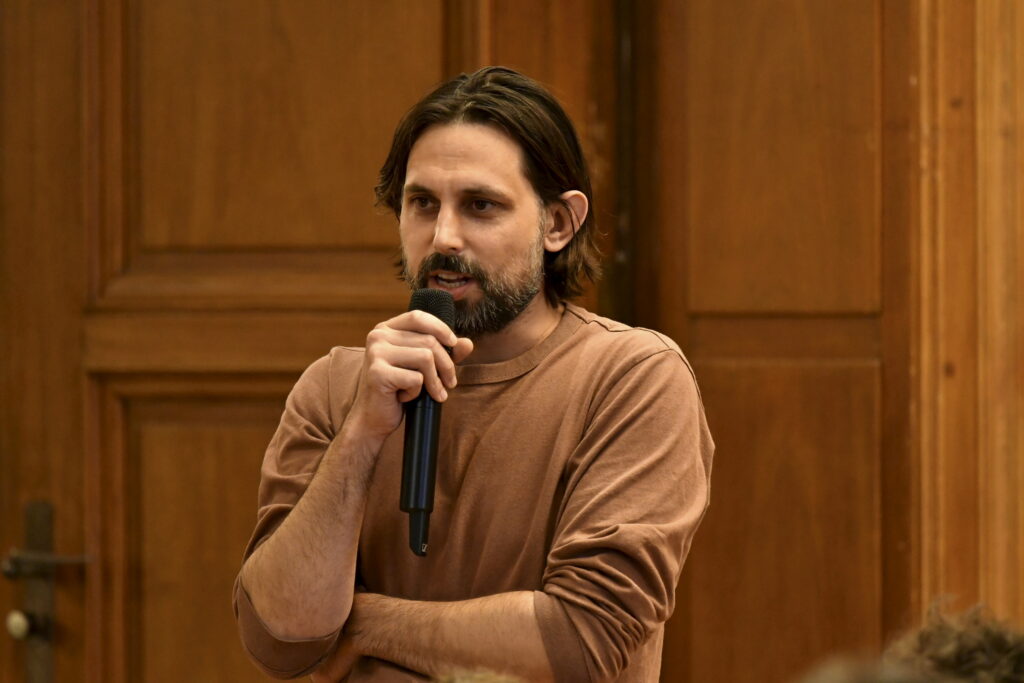
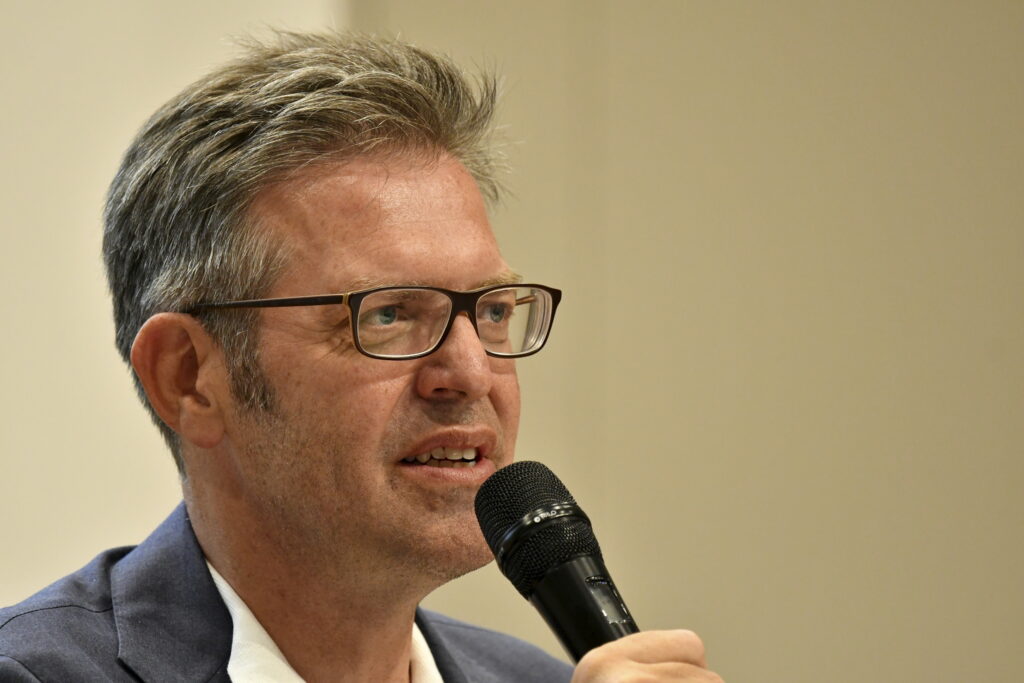
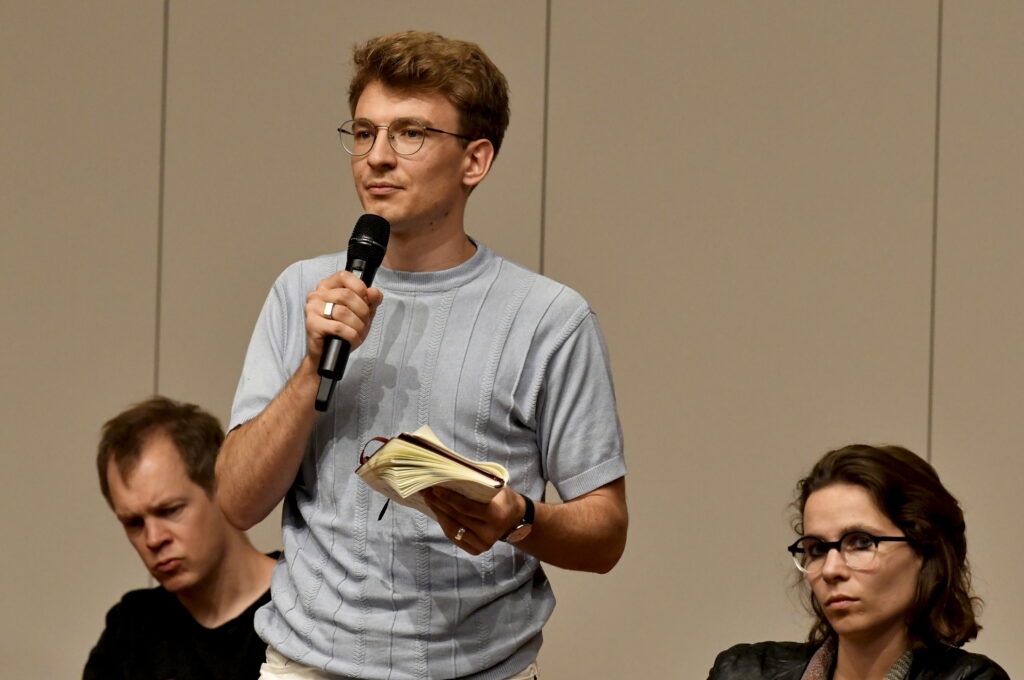
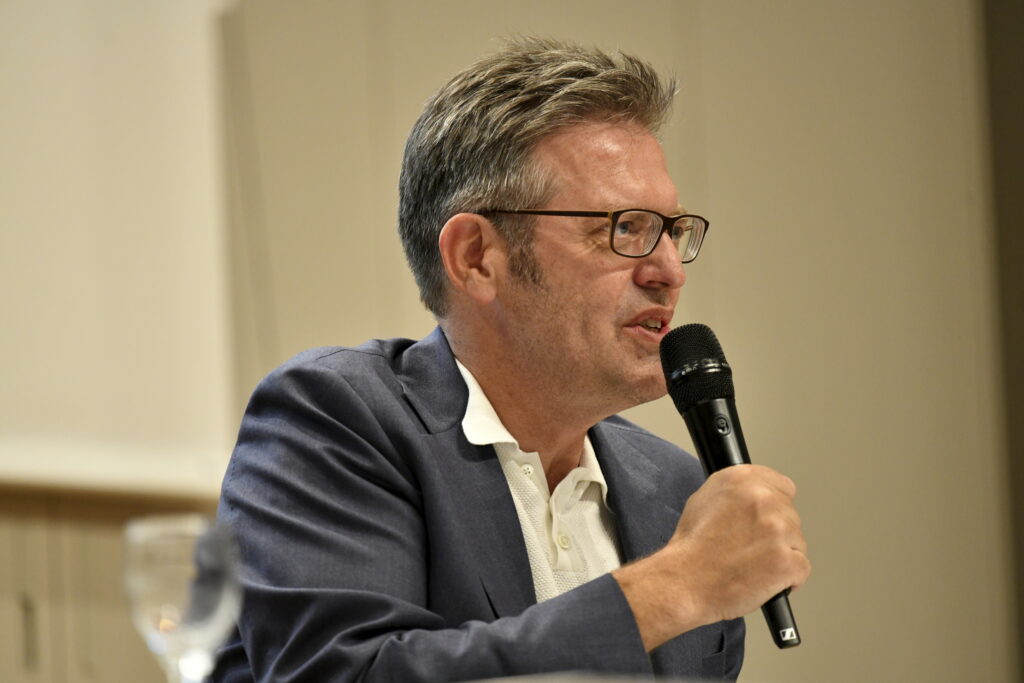
[media response]:
– Guest article by Barbara Stollberg-Rilinger in the Tagesspiegel: Ja, nein, ich meine: jein!: Entscheiden als Kulturtechnik
– The lecture by Steffen Mau in the Hörsaal-podcast of Deutschlandfunk Nova (rerun, moderated by Sibylle Salewski): Sozialer Wandel: Eine Frage des Tempos
– The lecture by Marietta Auer in the Hörsaal-podcast of Deutschlandfunk Nova (rerun, moderated by Sibylle Salewski): Was öffentlich sein muss und was privat bleiben darf


